Creative Resources for ESL/EFL Teachers


ESL Presentation Topics: 12 Mini Presentations
ESL presentation topics for intermediate and upper intermediate students. Great as a warm-up or a speaking lesson.
You can use the slideshow and share your screen on Zoom or other app when teaching online. Just click on the full screen option in the top right corner of the slideshow.
I used it with my students during our online lesson and we didn’t even have time to discuss all the topics, because they couldn’t stop talking. I was quite impressed how much they knew and also how well they could express their opinions.
One of the reasons why I love conversation activities is that I learn so much about my students. I think that we often underestimate our students and see them as the stereotypical lazy teenagers. Activities like these can show us that they are much more than that.
You can also download the PDF for easy printing below.
Other picture-based resources:
ESL Exam Speaking Picture Description and Questions
No-Prep ESL Picture Description Speaking Activity
Picture Based Speaking Activity For ESL/EFL Classes
Picture Prompts for Speaking and Writing: An ESL Activity
ESL Picture Description: Exam Skills Practice
Food and Travel ESL Lesson: Interactive Online Lesson
Conversation resources:
Popular Conversation Topics for (not only) Adults and Teenagers: 50 Questions
Conversation Starters: 30 Interesting Conversation Questions Not Only For ESL Students
Conversation Questions Gerunds and Infinitives: ESL Speaking Activity
30 Hypothetical Conversation Questions for ESL Students
ESL Conversation Topics

Related Posts

ESL Teaching Idea: Class Speaking Activity
Engaging speaking activity for upper intermediate and advanced students.

Unfinished Sentences ESL Speaking Activity
Unfinished sentences ESL speaking activity is great for revising grammar, as a warm-up or a conversation starter. It can be used with groups of various sizes as well as in one to one classes. Finish the sentence. Tell your story. 1. I was very surprised when__________________________________________________. 2. What I…

10 Websites To Make Your Lessons More Engaging And Fun
Fun and engaging online activities for your ESL/EFL classes.
Comments (7)
- Pingback: 50 ESL Conversation Questions for Teenagers and Adults | EFL Ideas
- Pingback: ESL icebreakers, warm ups, back to school activities and more | EFL Ideas
- Pingback: Phrasal Verbs Activity Exercises Discussion Questions | EFL Ideas
- Pingback: Conversation Topics for (not only) Adults: 5o Questions - EFL Ideas
- Pingback: Conversation Starters: 30 Interesting Conversation Questions - EFL Ideas
- Pingback: Back to School Activities ESL for ESL Classes- EFL Ideas
Amazing! Thanks a lot
Leave a Reply Cancel reply
Your email address will not be published. Required fields are marked *
Save my name, email, and website in this browser for the next time I comment.
This site uses Akismet to reduce spam. Learn how your comment data is processed .
- Professional development
- Planning lessons and courses
Student presentations
In this article I would like to give you a few tips and some advice on what I've learned from helping students prepare and deliver presentations.

- Why I get students to do presentations
- Syllabus fit
- Planning a presentation lesson
- Classroom Management
Why I get students to do presentations Presentations are a great way to have students practise all language systems areas (vocabulary, grammar, discourse and phonology) and skills (speaking, reading, writing and listening). They also build confidence, and presenting is a skill that most people will need in the world of work. I find that students who are good presenters are better communicators all round, since they are able to structure and express their ideas clearly.
- Presentation skills are extremely useful both in and outside the classroom. After completing a project, a presentation is a channel for students to share with others what they have learned. It is also a chance to challenge and expand on their understanding of the topic by having others ask questions. And in the world of work, a confident presenter is able to inform and persuade colleagues effectively.
- Presentations can also form a natural part of task based learning. By focussing on a particular language point or skill, the presentation is a very practical way to revise and extend book, pair and group work. The audience can also be set a task, for example, a set of questions to answer on the presentation, which is a way of getting students to listen to each other.
Syllabus fit Normally the presentation will come towards the end of a lesson or series of lessons that focus on a particular language or skill area. It is a type of freer practice. This is because the students need to feel relatively confident about what they are doing before they stand up and do it in front of other people. If I have been teaching the past simple plus time phrases to tell a story, for example, I give my students plenty of controlled and semi controlled practice activities, such as gapfills, drills and information swaps before I ask them to present on, say, an important event in their country's history, which involves much freer use of the target grammar point.
Planning a presentation lesson Normally a presentation lesson will have an outline like this:
- Revision of key language areas
- Example presentation, which could be from a textbook or given by the teacher
- Students are given a transcript or outline of the presentation
- Students identify key stages of the example presentation – greeting, introduction, main points in order of importance, conclusion
- Focus on linking and signalling words ('Next…', 'Now I'd like you to look at…', etc.). Students underline these in the transcript/place them in the correct order
- Students are put into small groups and write down aims
- Students then write down key points which they order, as in the example
- Students decide who is going to say what and how
- Students prepare visuals (keep the time for this limited as too many visuals become distracting)
- Students practise at their tables
- Students deliver the presentations in front of the class, with the audience having an observation task to complete (see 'Assessment' below)
- The teacher takes notes for feedback later
It is important that the students plan and deliver the presentations in groups at first, unless they are extremely confident and/or fluent. This is because:
- Shy students cannot present alone
- Students can support each other before, during and after the presentation
- Getting ready for the presentation is a practice task in itself
- When you have a large class, it takes a very long time for everyone to present individually!
I find it's a good idea to spend time training students in setting clear aims. It is also important that as teachers we think clearly about why we are asking students to present.
Aims Presentations normally have one or more of the following aims:
- To inform/ raise awareness of an important issue
- To persuade people to do something
- Form part of an exam, demonstrating public speaking/presentation skills in a first or second language
I set students a task where they answer these questions:
- Why are you making the presentation?
- What do you want people to learn?
- How are you going to make it interesting?
Let's say I want to tell people about volcanoes. I want people to know about why volcanoes form and why they erupt. This would be an informative/awareness-raising presentation. So by the end, everyone should know something new about volcanoes, and they should be able to tell others about them. My plan might look like this:
- Introduction - what is a volcano? (2 minutes)
- Types of volcano (5 minutes)
- Volcanoes around the world (2 minutes)
- My favourite volcano (2 minutes)
- Conclusion (2-3 minutes)
- Questions (2 minutes)
Classroom Management I find that presentation lessons pass very quickly, due the large amount of preparation involved. With a class of 20 students, it will probably take at least 3 hours. With feedback and follow-up tasks, it can last even longer. I try to put students into groups of 3 or 4 with classes of up to 20 students, and larger groups of 5 or 6 with classes up to 40. If you have a class larger than 40, it would be a good idea to do the presentation in a hall or even outside.
Classroom management can become difficult during a presentations lesson, especially during the final presenting stage, as the presenters are partly responsible for managing the class! There are a few points I find effective here:
- Training students to stand near people who are chatting and talk 'through' the chatter, by demonstration
- Training students to stop talking if chatter continues, again by demonstration
- Asking for the audience's attention ('Can I have your attention please?')
- Setting the audience an observation task, which is also assessed by the teacher
- Limiting the amount of time spent preparing visuals
- Arranging furniture so everyone is facing the front
Most of these points are self-explanatory, but I will cover the observation task in more detail in the next section, which deals with assessment.
Assessment The teacher needs to carefully consider the assessment criteria, so that s/he can give meaningful feedback. I usually run through a checklist that covers:
- Level - I can't expect Elementary students to use a wide range of tenses or vocabulary, for example, but I'd expect Advanced students to have clear pronunciation and to use a wide range of vocabulary and grammar
- Age - Younger learners do not (normally) have the maturity or general knowledge of adults, and the teacher's expectations need to reflect this
- Needs - What kind of students are they? Business English students need to have much more sophisticated communication skills than others. Students who are preparing for an exam need to practise the skills that will be assessed in the exam.
I write a list of language related points I'm looking for. This covers:
- Range / accuracy of vocabulary
- Range / accuracy of grammar
- Presentation / discourse management- is it well structured? What linking words are used and how?
- Use of visuals- Do they help or hinder the presentation?
- Paralinguistic features
'Paralinguistics' refers to non-verbal communication. This is important in a presentation because eye contact, directing your voice to all parts of the room, using pitch and tone to keep attention and so on are all part of engaging an audience.
I find it's a good idea to let students in on the assessment process by setting them a peer observation task. The simplest way to do this is to write a checklist that relates to the aims of the lesson. A task for presentations on major historical events might have a checklist like this:
- Does the presenter greet the audience? YES/NO
- Does the presenter use the past tense? YES/NO
And so on. This normally helps me to keep all members of the audience awake. To be really sure, though, I include a question that involves personal response to the presentation such as 'What did you like about this presentation and why?'. If working with young learners, it's a good idea to tell them you will look at their answers to the observation task. Otherwise they might simply tick random answers!
Conclusion Presentations are a great way to practise a wide range of skills and to build the general confidence of your students. Due to problems with timing, I would recommend one lesson per term, building confidence bit by bit throughout the year. In a school curriculum this leaves time to get through the core syllabus and prepare for exams.
Presentations - Adult students
- Log in or register to post comments
Presentation Article
Research and insight
Browse fascinating case studies, research papers, publications and books by researchers and ELT experts from around the world.
See our publications, research and insight

Free ESL PowerPoint Lessons To Teach English
Download FREE ESL PowerPoint lessons and use them in class today. These PowerPoint lessons are great to use in lessons teaching English to English language learners. You’ll find vocabulary PowerPoints, grammar PowerPoints, seasonal grammar points, phonics PowerPoints, and more presentations covering the topics that ESL students typically study.
ESL PowerPoint Lessons
Browse through all our ESL PowerPoint lessons below.
- 2D Shapes PowerPoint
- 3D Shapes PowerPoint
- Action Verbs PowerPoint
- Animals PowerPoint
- Big And Small PowerPoint
- Body Parts PowerPoint
- Christmas PowerPoint
- Classroom Objects PowerPoint
- Clothes PowerPoint
- Colors PowerPoint
- Comparative Adjectives PowerPoint
- Daily Routine PowerPoint
- Describing Appearance PowerPoint
- Directions PowerPoint
- Fall/Autumn PowerPoint
- Family Members PowerPoint
- Farm Animals PowerPoint
- Feelings And Emotions PowerPoint
- Five Senses PowerPoint
- Food PowerPoint
- Fruits PowerPoint
- Halloween PowerPoint
- Hobbies PowerPoint
- Homophones PowerPoint
- How Much Is It? PowerPoint
- Jobs And Occupations PowerPoint
- Natural Disasters PowerPoint
- Nature PowerPoint
- Nouns PowerPoint
- Numbers PowerPoint
- Onomatopoeia PowerPoint
- Opposite Words PowerPoint
- Ordinal Numbers PowerPoint
- Pet Animals PowerPoint
- Places Around Town PowerPoint
- Prepositions Of Place PowerPoint
- Present Progressive PowerPoint
- Present Simple PowerPoint
- Rooms Of The House PowerPoint
- School Subjects PowerPoint
- Sea Animals PowerPoint
- Seasons PowerPoint
- Sickness and Health PowerPoint
- Sports PowerPoint
- Spring Vocabulary PowerPoint
- Superlative Adjectives PowerPoint
- Telling The Time PowerPoint
- There Is There Are PowerPoint
- Toys PowerPoint
- Transportation PowerPoint
- Vegetables PowerPoint
- Weather PowerPoint
- Wh Questions PowerPoint
- Winter Clothes PowerPoint
- Winter Sports PowerPoint
More Resources
You can find many more free ESL resources on Games4esl. Check out our free PowerPoint Games , Activity Videos , Online Quizzes , Worksheets , and ESL Printables .
Search form
- Speaking exams
- Typical speaking tasks
Oral presentation
Giving an oral presentation as part of a speaking exam can be quite scary, but we're here to help you. Watch two students giving presentations and then read the tips carefully. Which tips do they follow? Which ones don’t they follow?
Instructions
Watch the video of two students doing an oral presentation as part of a speaking exam. Then read the tips below.
Melissa: Hi, everyone! Today I would like to talk about how to become the most popular teen in school.
Firstly, I think getting good academic results is the first factor to make you become popular since, having a good academic result, your teacher will award you in front of your schoolmates. Then, your schoolmates will know who you are and maybe they would like to get to know you because they want to learn something good from you.
Secondly, I think participating in school clubs and student unions can help to make you become popular, since after participating in these school clubs or student union, people will know who you are and it can help you to make friends all around the school, no matter senior forms or junior forms.
In conclusion, I think to become the most popular teen in school we need to have good academic results and also participate in school clubs and student union. Thank you!
Kelvin: Good evening, everyone! So, today I want to talk about whether the sale of cigarettes should be made illegal.
As we all know, cigarettes are not good for our health, not only oneself but also other people around. Moreover, many people die of lung cancer every year because of smoking cigarettes.
But, should the government make it illegal? I don’t think so, because Hong Kong is a place where people can enjoy lots of freedom and if the government banned the sale of cigarettes, many people would disagree with this and stand up to fight for their freedom.
Moreover, Hong Kong is a free market. If there's such a huge government intervention, I think it’s not good for Hong Kong’s economy.
So, if the government wants people to stop smoking cigarettes, what should it do? I think the government can use other administrative ways to do so, for example education and increasing the tax on cigarettes. Also, the government can ban the smokers smoking in public areas. So, this is the end of my presentation. Thank you.
It’s not easy to give a good oral presentation but these tips will help you. Here are our top tips for oral presentations.
- Use the planning time to prepare what you’re going to say.
- If you are allowed to have a note card, write short notes in point form.
- Use more formal language.
- Use short, simple sentences to express your ideas clearly.
- Pause from time to time and don’t speak too quickly. This allows the listener to understand your ideas. Include a short pause after each idea.
- Speak clearly and at the right volume.
- Have your notes ready in case you forget anything.
- Practise your presentation. If possible record yourself and listen to your presentation. If you can’t record yourself, ask a friend to listen to you. Does your friend understand you?
- Make your opinions very clear. Use expressions to give your opinion .
- Look at the people who are listening to you.
- Write out the whole presentation and learn every word by heart.
- Write out the whole presentation and read it aloud.
- Use very informal language.
- Only look at your note card. It’s important to look up at your listeners when you are speaking.
Useful language for presentations
Explain what your presentation is about at the beginning:
I’m going to talk about ... I’d like to talk about ... The main focus of this presentation is ...
Use these expressions to order your ideas:
First of all, ... Firstly, ... Then, ... Secondly, ... Next, ... Finally, ... Lastly, ... To sum up, ... In conclusion, ...
Use these expressions to add more ideas from the same point of view:
In addition, ... What’s more, ... Also, ... Added to this, ...
To introduce the opposite point of view you can use these words and expressions:
However, ... On the other hand, ... Then again, ...
Example presentation topics
- Violent computer games should be banned.
- The sale of cigarettes should be made illegal.
- Homework should be limited to just two nights a week.
- Should school students be required to wear a school uniform?
- How to become the most popular teen in school.
- Dogs should be banned from cities.
Presentations
Type of English
Lesson time
I want to learn

LESSON PLAN FOR ENGLISH TEACHERS

Level: Intermediate (B1-B2)
Type of English: Business English
Tags: meetings visual aids giving a presentation Situation based
Publication date: 07/20/2021
Students briefly discuss their own experiences of presentations before identifying types of diagrams often used in presentations and their functions. They listen to a business presentation and identify and practise a range of functional language for structuring presentations. The lesson includes vocabulary development and a presentation activity which can be extended to include preparation of slides with visual aids. Students should prepare and practise their presentation as homework and deliver it in another lesson. The materials also include an optional extension activity relating to what can go wrong with a presentation.
by Stephanie Hirschman
presentation_BrE.mp3
very useful to enhance my students' listening skill
Leave a Comment
Student worksheet
Teacher lesson plan
Download audio
Save lesson to
Students briefly discuss their own experiences with presentations before identifying types of diagrams often used in presentations and their functions. They listen to a business presentation and identify and practice a range of functional language for structuring presentations. The lesson includes vocabulary development and a presentation activity which can be extended to include preparation of slides with visual aids. Students should prepare and practice their presentation as homework and deliver it in another lesson. The materials also include an optional extension activity relating to what can go wrong with a presentation.
presentations_AmE.mp3
COURSE PLANS
This comprehensive course plan covers the full range of language needs – listening, role play, vocabulary development.
Worksheets in English for Work and Life course plan
Type of English: Business English Level: Intermediate (B1-B2)
Type of English: General English Level: Intermediate (B1-B2)
Type of English: General English Level: Mixed levels
Worksheets in English for Business course plan
Type of English: Business English Level: Upper-intermediate (B2-C1)
Make your lessons unforgettable
Did you know that your students can review the target language from our worksheets with our Expemo flashcard app? To let your student know, just enter their email address below (multiple emails can be separated with a comma).
Presentations in English
Learn how to deliver a presentation in English. Our English for presentations lessons cover all aspects of making a presentation in English, including starting your English presentation, engaging your audience and handling the Q&A.
English for Presentations by Business English Pod
Are you looking to improve your English for presentations? Whether you’re a professional or a student, being able to deliver an effective presentation in English is a valuable skill that can open doors to new opportunities. In this guide, we will explore the key strategies and techniques to master the art of business English presentations. From structuring your presentation to using persuasive language, we’ll cover everything you need to know to captivate your audience and make a lasting impression.
Our earlier lessons look at key language for making presentations in English . You’ll learn how to make a clear introduction, link and signpost your ideas, and deliver a powerful summary with a compelling call to action. As you progress, handling questions and answers becomes second nature, ensuring you can deal with any Q&A session confidently.
Moving on to delivery skills, we guide you through aspects such as using your voice effectively and presenting charts and graphs. These foundational skills lay the groundwork for a successful presentation in English.
Advanced lessons include our “ Presenting Online ” series, guiding you through the nuances of online presentations, and the advanced English presentations trilogy, covering the entire presentation process for advanced business English learners.
In the world of product presentations , we look at how to present essential features so you can perfect your sales pitch. For international conferences, our lesson on opening presentations ensures you start events with confidence, setting the stage for engaging sessions.
Handling Q&A sessions can be tricky, but our lessons on presenting in English prepare you to respond smoothly, managing queries with ease for a polished presentation. Lessons on SWOT analysis, presenting persuasive arguments , and sales presentations further elevate your proficiency.
Whether you’re building a solid foundation or refining your skills, these lessons serve as a comprehensive guide to business English for presentations. Get ready to captivate your audience and make a lasting impression in your next English presentation!
Our English for presentations lessons are listed by release date, with the most recent lesson at the top. Each lesson includes the podcast MP3, a PDF transcript and online quizzes.
BEP 33c – Presentations: Summarizing and Call to Action
Bep 380 – videoconferences: presenting online (3), bep 379 – videoconferences: presenting online (2), bep 378 – videoconferences: presenting online (1), bep 366 – english for startups 3: addressing investor concerns.
- BEP 365 – English for Startups 2: Pitching to Investors
- BEP 321 – Project Management 6: Launching User Testing
- BEP 305 – Business English Collocations for Emphasizing (2)
- BEP 304 – Business English Collocations for Emphasizing (1)
- Skills 360 – Presentations: Connecting with your Audience (2)
- Skills 360 – Presentations: Connecting with your Audience (1)
- BEP 276 – English Presentation Skills 3: Wrapping Up
- BEP 275 – English Presentation Skills 2: Engaging your Audience
- BEP 274 – English Presentation Skills 1: Getting Started
- BEP 267 – Presenting Numbers in English (Part 2)

Welcome back to Business English Pod for today’s lesson on how to finish a presentation with a summary and a call to action.
An effective presentation is one that you remember. And an effective presenter is one who knows how to get information to stick and how to make a lasting impression on the audience. But for many people, that’s easier said than done. So how can you get your ideas to stick?
Well, there’s a simple structure that you can follow. That structure involves signaling that you’re going to end your presentation. Next, you can provide a summary of what you’ve discussed. Then you can make a call to action. And finally, you can thank your audience and invite questions. With this structure, you can make a strong finish to your presentation and a lasting impression.
Today we’ll listen to a presentation by Nick, a sales director for a steel company. Nick is giving a presentation about ideas for increasing sales, which have been rather disappointing. He uses several techniques to summarize and emphasize his key points. And he provides a strong finish to his presentation.
Listening Questions
1. What does Nick say to introduce the final summary of his main ideas? 2. What does Nick tell people he wants them to do near the end of the presentation? 3. What does Nick do to end his presentation?

Welcome back to Business English Pod for today’s lesson on videoconferences and presenting online . Today, we’re going to focus on handling questions and managing the Q&A.
With the rise of hybrid teams, presenting online is just a regular part of work for many professionals. And while the basics of delivering information in a virtual setting may seem simple, interacting with your audience and dealing with questions feels very different online than in person. Skilled presenters have a variety of tricks for ensuring a productive Q&A, or question and answer, session.
For example, when someone asks a good question, you might redirect it to the entire group. That gives the Q&A more of a discussion feel. And if people aren’t asking questions, you can ask some yourself. Of course, sometimes people introduce ideas that you don’t really have time to explore. In this case, you can suggest more discussion at a later time.
Good presenters are also ready to admit any limitations to what they’ve presented. Nobody has all the answers, so don’t pretend you do. And finally, once the Q&A is finished, it’s a great idea to encourage people to follow up with you later if they have any other questions.
In today’s dialog, we’ll listen to the end of a presentation by Adam, a business consultant. He’s handling some questions and encouraging discussion after presenting his ideas on ways to increase sales. We’ll also hear Adam’s colleague Nancy and his boss Heather ask questions and participate in the discussion.
1. What question does Nancy ask that Adam redirects to the entire group? 2. What question does Adam ask everyone to encourage them to share their ideas? 3. What key point does Adam admit they’re still not sure about?

Welcome back to Business English Pod for today’s lesson on videoconferences and presenting online . Today, we’re going to look at how to wrap up your presentation and transition to the Q&A.
Great presenters always make time and space for questions at the end of their presentation . And if you’ve done a good job of engaging your listeners, they may have lots to say or ask. Before you open it up for questions, however, you need to summarize.
One thing you can do to emphasize key points near the end is to ask a question yourself, then answer it. And an effective way to answer it is with a visual or some kind of illustration. That will help your ideas stick, not just at the end, but throughout your presentation.
Near the end of a presentation , there may be people who have to leave early so it’s important to acknowledge these people and let them know how you’ll follow up. Finally, it’s a good idea at the end to summarize your key points. Once you’ve done these things, you can make the transition to the Q&A section of your presentation .
In today’s dialog, we’ll rejoin a presentation by a business consultant named Adam. He’s wrapping up a talk about how the company can increase sales. We’ll hear how Adam finishes up and transitions to the Q&A.
1. What question does Adam ask his listeners which he then answers by showing a visual? 2. What does Adam offer to do for people who have to leave early? 3. What’s the first big opportunity Adam mentions as he summarizes his presentation?

Welcome back to Business English Pod for today’s lesson on videoconferences and presenting online. Today, we’re going to focus on how to get your presentation off to a good start.
Videoconferences are now a normal, everyday part of business life. And people have had to develop a new set of skills for this new reality. Consider giving a presentation online. It definitely brings some new challenges, especially technical ones. But virtual presentations also require many of the same skills as presenting in-person.
For example, you still need to be engaging and confident, especially at the start as you get people excited about your presentation . And besides getting them excited, you need to help them understand. So outlining your presentation clearly is also a good idea.
Now, how can you present information and data in a way that keeps your listeners engaged? Well, for one thing, you can talk about your own experience. And you can also relate the information to your listeners’ experience. That will help your presentation connect with your audience. And finally, one technical skill that you’ll need in the virtual format is sharing your screen.
In today’s dialog, we’ll listen to part of an online presentation given by Adam, who works as a business consultant. He’s presenting on the topic of sales to several colleagues, including Chris, Nancy, and his boss Heather. We’ll hear how Adam begins his online presentation.
1. What is the last thing Adam will do in his presentation, according to his outline? 2. What experience does Adam talk about to ground his presentation? 3. What information does Adam present on his shared screen? Premium Members: PDF Transcript | Quizzes | PhraseCast | Lesson Module
Download: Podcast MP3

Welcome back to Business English Pod for today’s lesson on addressing investor concerns during a pitch in English .
One of the greatest skills in business is the art of persuasion. Whether you’re running a startup and wooing a big investor or trying to convince your boss to give you a pay raise you need to be able to persuade.
Of course, we often use a pitch or presentation to persuade, especially when looking for startup investment. But the pitch alone won’t seal the deal. The real test is handling questions and concerns after your pitch. Can you anticipate these concerns and be ready to address them? Can you think and speak on the fly? Do you have the confidence to back up what you’ve said in your presentation?
There are several concerns you might have to address. For one, you may have to explain exactly why your idea is unique. And you might also have to show clearly that you’re committed to the idea. One common investor concern is the valuation, or how much you think the company’s worth. You’ll need to justify your valuation clearly, and explain what you’ll do with the investor’s money. And through it all, you’ll be trying to show why you are backable, or deserve the investor’s support.
In today’s dialog, we’ll rejoin Quinn, who is seeking investment for his online payments company called Moolah. In our last lesson, Quinn gave his pitch to the investor. Now he has to address some tough questions and concerns from a potential investor named Mason.
1. What does Quinn believe shows that he’s fully committed to the company? 2. What exactly does Quinn plan to do with the investor’s money? 3. Why does Quinn believe he is backable on a personal level?
How to nail that presentation
- Business Skills
- Presentation Skills
Presentations - types and structures

This is a standalone lesson but it can also be used as part of the set titled:
- Delivering presentations
LESSON OVERVIEW
In this lesson about business presentations in English, students discuss presentation structures in depth, watch a video with tips on giving presentations , and learn useful words and phrases related to the topic.
The lesson is the first of the three-part series of lessons about delivering presentations. You will find the second part of the series here and the third part of the series here .
VOCABULARY & VIDEO
The lesson starts with a matching exercise in which students learn some common collocations (e.g. step up your game, nooks and crannies ). After that, students use the collocations to complete six statements referring to business presentations (e.g. joking during a presentation, using visual aids). Then, students discuss if they agree with the statements or not. Before watching the video about virtual presentations, students decide whether the tips listed in the task should be on the ‘do’ or ‘don’t’ list . They watch the video and check their answers. During the second viewing, students have to answer a few comprehension questions about the video. This task is followed by a short discussion during which students share their opinions on what they learned from the video.
TYPES & STRUCTURES OF BUSINESS PRESENTATIONS
This part of the lesson starts with a vocabulary exercise . Students read a short text explaining what an elevator pitch is, and find words (e.g. affable, detract from ) which match the given meanings. Then, they briefly discuss the idea of an elevator pitch and other types of business presentations. After that, students match descriptions to four types of presentations (e.g. annual stakeholder report, team briefing ). In the last part of the lesson, students do a speaking activity in which they talk about structures of different kinds of presentations (e.g. pitching an app to investors, giving a demo for the MVP ). They also brainstorm possible challenges each of them presents, and discuss what tips they would give to a person delivering the presentation.
Subscribe to unlock these and many other Standalone lesson lesson plans with the Unlimited plan
Leave a Reply Cancel reply
You must be logged in to post a comment.
Powerpoint needs correction on page 18-19. Things are not in the right place
Powerpoint needs correction on page 16-17. Things are not in the right place
Cris, are you sure you’re referring to the right slides? Only slide 16 has a ‘moving’ element and slides 17-19 are static. Nevertheless, I checked these slides in Chrome, Safari and Mozilla and everywhere it all renders correctly. Please email us at [email protected] with a screenshot of the misalignment and info what browser you use.
If you’re downloading the e-lessons as Powerpoint slides, you need to ensure you have the correct fonts installed on your computer – otherwise your computer will substitute them for a different one, which may not be the same size, and therefore affect layout.
Most of the ESLBrains Powerpoints seem to use the Signika font. If you Google “Signika font”, you can download it for free. Install the font files on your Mac or PC, and you’re good to go.
wow! Really useful the lesson!
Browse other materials recommended for you

Office, remote or hybrid?
With this up-to-date lesson, students discuss work life after lockdown and practise vocabulary to talk about workplace changes. They also watch a news video about companies changing the way they work and discuss different work models.

As per my last email…
Dive into the intriguing world of emailing and talk about what annoys people the most. With this lesson, students expand their vocabulary, express irritation, and analyze real-life situations.

Is a degree worth it?
Engage your students in a discussion on the ins and outs of higher education. Explore education and career-related vocabulary and work on comprehension skills by watching a news report on the job market.

How to stand out at work
Let your students share opinions on getting promoted and being noticed at work. They will discuss hypothetical situations, share experiences and comment on advice from a video.

All about branding
This is a perfect lesson for students who want to discuss brands and the idea of branding. Students learn and practise useful phrases, as well as improve their comprehension skills.

Talking about leaders
Students talk about good and bad leadership, watch an explainer video and share their experiences. Let them explain why they’d rather be a good leader or have a good leader.

Ready to go paperless?
In this lesson, students learn some vocabulary related to document management, talk about going paperless, watch a video, and work on word building learning suffixes ‘-ful’ and ‘-less’.

Passive income
In this passive income ESL lesson plan, students watch a video, learn vocabulary and have speaking practice.

How to succeed as a freelancer
In this lesson students discuss working as a freelancer. They watch a video, do four role-plays and talk about different freelancing ideas.
Is there a minimum subscription period if I choose a monthly subscription?
No, there’s no minimum required number of subscription months. You can cancel any time you want. Basically, you can sign up and then cancel your subscription the next day, which will mean you have access for 1 month and won’t be charged again.
What currencies can I pay in for my subscription?
Our default currency is USD (American dollar), but you can also pay in EUR (euro), GBP (British pound sterling) or PLN (Polish zloty). You can change the currency you want to pay in at the Pricing page before selecting a subscription plan.
How can I edit an e-lesson plan?
You can get your own editable copy of an e-lesson plan and make changes to it. To do so, either (1) make a copy of it on your Google Drive (preferable method) or (2) download it in a Powerpoint format (but formatting might be a bit off so we can’t guarantee that it will work well).
We are using cookies to give you the best experience on our website, personalize content and analyze website traffic. For these reasons, we may share your site usage data with our social media, and analytics partners. You can find out more about which cookies we are using or switch them off in settings.
Privacy settings
With the slider, you can enable or disable different types of cookies:, this website will:, this website won't:.
- Essential: Remember your cookie permission setting
- Essential: Allow session cookies
- Essential: Gather information you input into a contact forms, newsletter and other forms across all pages
- Essential: Keep track of what subscription you select to buy
- Essential: Authenticate that you are logged into your user account
- Remember your login details
- Functionality: Remember social media settings
- Functionality: Remember selected region and country
- Analytics: Keep track of your visited pages and interaction taken
- Analytics: Keep track about your location and region based on your IP number
- Analytics: Keep track of the time spent on each page
- Analytics: Increase the data quality of the statistics functions
- Advertising: Tailor information and advertising to your interests based on e.g. the content you have visited before. (Currently we do not use targeting or targeting cookies.
- Advertising: Gather personally identifiable information such as name and location
- Advertising: Use information for tailored advertising with third parties
- Advertising: Allow you to connect to social sites
- Advertising: Identify device you are using
- Essential: Keep track of what you input in a shopping cart
- Essential: Remember language version you selected
- Advertising: Allow you to connect to social sitesl Advertising: Identify device you are using
Username or Email Address
Remember Me

Presentation skills: hooking the audience
Level A2 / B1
Topic Business
Type Business English
Lesson plan overview
This pre-intermediate and intermediate Business English lesson plan is dedicated to the topic of presentations . It is the first of a series of lessons about presentation skills. This lesson is focused on different techniques used to hook the audience at the beginning of a presentation. Reading and useful language: After an initial discussion about presentations, students read about 5 different ways to grab the audience’s attention (rhetorical questions, shocking statistics, quotes, storytelling, using the words “imagine” and “what if” and a few examples for each type of hook. Then students are given 15 phrases, which they need to put into the correct category according to the type of hook the phrase is. Video: Next students move on to the listening task. They take a look at the 4-step formula that is going to be mentioned in the video and talk about what the correct order of the steps is. Next, they watch the first part of the video “How to start your presentation: 4 step formula for a killer presentation” and check their answers. After that they work out how the speaker used her formula when starting her talk and watch the second part of the video to check their answers. After watching, students discuss their last presentation, the technique they used to hook the audience and how they could improve it. Lastly, students are asked to prepare the intro for one of the presentation topics given. For additional speaking practice, you can use the printable set of conversation cards.
Unlock these resources with one of our subscription plans
Teacher’s lesson plan
Student’s worksheet
Student’s interactive PDF
Conversation cards PDF

Pre-class activities
All video-based ESL lesson plans include online pre-class activities, which are FREE and can be completed without registration. Perfect for teachers who wish to embrace the blended learning approach. By providing students with resources and engagement opportunities before the actual class session, educators can foster active participation, enhance comprehension, and optimise in-class discussions.
The pre-class activities are optional : if you choose not to assign them, or your students don’t complete them, it will not disturb the flow of the class. You can find and review the pre-class activities for this lesson plan here:
To send the pre-class activities to your students, copy the link below.

In-class activities
Get Premium to unlock
Get Premium Plus to unlock

Additional resources
Each video-based lesson plan includes links to additional resources (videos and articles), which are FREE can be found online (in the pre-class activities page. These links aim to extend the learning experience, enabling students to connect classroom knowledge with real-world applications.
Not sure yet?
Try one of our FREE lessons plans
Login using email and password. If you forgot your passowrd reset it here
Forgot your password?
Not a member? Sign up now
Share this lesson plan with someone who will find it useful
20+ Great Business English Topics and Lesson Activities
For Business English students, it’s important that ESL lessons are based on the needs of their day-to-day work.
They want to practice situations taken from their professional environment, and discuss real-life Business English topics.
Some are: making phone calls, being able to hold and carry on conversations, speaking with colleagues, preparing and giving presentations, or negotiations.
Join our mailing list to receive a free ESL teaching resource every week.
Click to Join
Coming up with creative activities and finding good topics for your lessons can be tough and time-consuming.
The Business English activities in this post will save you time and effort in making quality content for your lessons.

About the Business English Topics And Activities
Topic: airbnb business travel, topic: commuting to work, topic: big business (amazon, coca-cola, netflix, etc.), topic: artificial intelligence and future technology, topic: music, bonus activity.
Lessons including well-designed activities will prepare your students for their professional lives and give them the necessary skills and vocabulary needed to communicate effectively in English.
The 20 activity suggestions you’ll find in this post relate to the topics of business travel, commuting to work, big business, artificial intelligence, technology, and music.
The activities you can do on these business English topics are from specific lesson plans based on videos , which come equipped with a range of different printable Business English worksheets , conversation topics, speaking exercises, listening activities, and writing exercises for adults.
Below are some examples of activities from these lessons that can help your Business English students improve their communication skills.
Airbnb has been expanding their services to open up the market for business travelers.
They are simplifying the process of booking and launched some tools which automatically organize your business trip expenses. This new business travel program is coming out strong.
- Phone Calling
- Writing Accommodation Descriptions
- Leaving Reviews
- Mobile App Concepts
- Debate With Hotel Owner
- Comparing and Contrasting
This topic works especially great with Business English lessons in the real estate, hospitality, or mobile app industries, but also in general for any businessmen or women who have to travel for their jobs.
This is an especially engaging Business English topic for a few reasons: it’s controversial (hotel owners aren’t happy about AirBnB) and it’s a hot topic (more and more people are choosing Airbnb over hotels).
Airbnb is a relatively new global powerhouse, revolutionizing the hospitality industry the same way that Uber revolutionized the taxi industry.
Activity: Phone Calling
Put students in pairs or a group. Assign each student a different role from the roles below, or they can choose one.
Students have to imagine that they are Airbnb hosts who just hosted:
- A small group of middle-aged business travelers
- A small group of young adult party travelers
- A small family of 4 with young children
- An individual traveler who came with his dog
Students then ‘call’ their ‘friends’ (another student in the class) to either leave a voicemail or talk about the experience (or complain about the experience!).
They should describe how the experience was as the host for these types of travelers:
- What was different about hosting each of their stays?
- Was it positive or negative and why?
- Did anything good, bad, surprising, or unusual happen during their stay?
You could even have them imagine what could be a positive and negative experience for hosting these types of travelers.
You could even get a bit more creative with this one by assigning a pair of students a role from the list above, and they have to call the ‘host’ (their partner) and ask them questions or make special requests about their stay, e.g:
- Am I allowed to bring my dog to your property?
- Is there a nice cafe in the area where I can bring my laptop to do work?
- We have a baby who cries a lot during the night. Will this bother you?
Even though with Airbnb, you would probably just message the host online, but in this case, you can make it a phone call to practice speaking.
Activity: Writing Accommodation or Property Descriptions & Reviews
Students work with a partner or group and imagine they are Airbnb hosts offering a special, exotic, or unique type of accommodation rental.
They should discuss and agree on the type of home rental they have to offer, where in the world it is, and create their own online listing for this rental on Airbnb.
In the listing, they should explain what type of rental it is, the location, the check-in and check-out procedure, a description and special features of the accommodation, and other housing details and rules.
Make students offer something different or special about their property – something they wouldn’t get somewhere else. Remember, they want to sell the experience!
Students then present their accommodation profile description to the other students in the class and then give their listing to another student or group.
The other student or group then makes a detailed review for that listing, imagining they actually stayed there.
Activity: Creating Mobile App Concepts in the Sharing Economy
Put students in pairs and give them a list of other mobile apps in the sharing economy.
- Neighborgoods
Based on the name of the app, students have to discuss and explain what they imagine the concept of the app to be and how it works.
After students work together for a couple of minutes, go around the class and ask them to report their answers. If they’re not able to imagine what it might be, you can just tell them.
Ask them questions like:
- Would this type of app be useful for you? Why or why not?
- Which app from this list would help you the most?
Try to create an in-depth class discussion about all of these apps.
For the apps listed above specifically, you can discuss things like:
- If parking is a problem for your students (JustPark)
- What they do with their dog when they go on a trip (DogVacay)
- If they would be interested to drive with a stranger for many hours (BlaBla Car)
- If they’ve ever eaten at someone’s home, from another country or culture (HomeDine)
Then, students can either work with the same or different partners to create their own concept for a mobile app in the sharing economy.
They should focus on things like:
- The special features of the app
- What problem it solves / Why it’s a good idea
- How it works
- What problems could happen when people use your app
An alternative to this one is I’ve also had students imagine that they were the founders of Airbnb, and they have to come up with their own detailed story behind the establishment of the company, which turned out to be a fun activity.
Activity: Debate Between AirBnB Representative and Hotel Owner
Put students in pairs or two small groups and they prepare for a debate.
One student or group takes the position of an AirBnB company representative and the other takes the position of a Hotel Owner.
Each side must prepare, defend, and present their positions to the other groups, presenting information about…
- Why they believe their accommodation service is better (at least 3 advantages of your service) Students must talk about the top reasons to stay in a hotel over Airbnb, or vice versa.
- If you think Airbnb should be legal or illegal and why (obviously the AirBnB rep will say it should be legal and the hotel owner will say it should be illegal)
- The positive impact your service has on society and the economy
- What actual people and guests have said about your accommodation services
You can refer to this article to help students talk about Airbnb versus hotels if they are having trouble coming up with ideas.
Your role as the teacher will be the moderator during the debate – generating follow-up questions for the students or groups when they present their sides. Keep the debate clean and flowing smoothly.
Activity: Comparing and Contrasting (Hotels vs. AirBnB or Uber vs. Taxi)
If for any reason you don’t want to make this an official ‘debate,’ another thing you could do is just make it a general, in-depth class discussion, conversation, or compare & contrast about the advantages and disadvantages of staying in Airbnb in comparison with hotels.
Make sure students talk about their own experiences.
Transition the discussion to the conflict between Uber and Taxi, because they are facing a similar conflict for similar reasons.
If your students enjoyed the discussion about AirBnB and hotels, an interesting follow-up lesson topic for you might be about a businessman who is building hotels designed for outer space .
Many businessmen and women in the modern world have to commute for hours and hours per week to their jobs or for work purposes. Sitting in the car or public transit like this can really have a negative impact on one’s overall lifestyle.
- Telling a Story
- Commenting on YouTube
- Expressing Frustrations or Complaining
- Talking About Lifestyle & Daily Routines
The reason this topic works so well in Business ESL lessons is that it reaches such a wide spectrum of people.
Everyone who has a job as an employee in a company, a school, a factory, etc has a unique situation. All Business English students usually have a lot to say about their experience commuting (or home office if they have that privilege!).
Activity: Telling a Story
Students work in pairs.
Student A: This student imagines that he/she spends a lot of time commuting and is very pessimistic about the situation.
This student believes that they have the worst commute in the world. Describe the situation in detail. The student should complain about it as much as possible and why they hate it so much.
They should take notes on:
- Where you live
- Your daily routine
- Where you go to work
- What’s so bad about the commute / What are the conditions of the commute
- How commuting makes you feel
The student then has to tell one negative story that they have had during their commute.
Student B: This student imagines that they spend a lot of time commuting but is very optimistic about the situation.
This student loves the situation that they have. They should discuss and explain in detail why they have the best commute in the world, talk about it as much as possible and why they enjoy it.
Also, they take notes on:
They tell one positive story that they’ve had during your commute.
After the students write notes for their roles (give them a few minutes), have them describe their situations to their partner.
They should listen to their partner’s situation carefully because they should then report the details of their partner’s situation back to the class!
Activity: Commenting on YouTube
At the beginning of the video, the reporter complains about her long daily routine and commute, and then she says to the audience:
“Before you go and post that comment telling me to ‘move closer’, you need to see that I’m not the only person doing this.”
In pairs, students should come up with a response that the following type of people would write or say to the reporter in the YouTube comments section, e.g:
- What could be a rude response to that statement in the comment section of the video?
- What could be an empathetic response to that statement in the comment section of the video?
- What could be a funny response to that statement in the comment section of the video?
Another activity you could do is give students some imaginary comments to that video, and then the students have to write responses to these imaginary comments. You can make it a speaking or writing activity.
For example, here are a few possible comments to that video:
Comment #1:
“Americans are completely crazy and lazy. You drive these huge cars to work and in reality , you don’t need to. Look at the Netherlands and Denmark – they have very efficient bicycle transport systems and bicycles are much more environmental. It’s stupid to drive everywhere.”
Comment #2:
“The best solution to this problem is self-driving cars. Our tax money should go more to support the production of self-driving cars. That way when people commute they can do productive things. The solution to public transit is getting better wifi connections on the subways and buses.”
You can instruct one student to write a response which agrees with each comment, and the other student to write a response which disagrees with each comment, something along those lines.
Activity: Expressing Frustrations & Complaining
Put students in pairs, or in two groups. You’ll distribute to each student pair or group two cards which read:
- A: Riding on public transport
- B: Driving in a car
Students must work together to come up with a list of all the things that frustrate them, annoy them, stress them out, or make them angry while (1) riding on public transport and (2) driving a car.
The group which comes up with the most things in the time limit (3 minutes should be good) wins.
This activity usually works really well because everyone gets angry, stressed, frustrated, etc. at some point while driving a car or riding public transportation.
A lot of good vocabulary can also come out of this one. You can even teach a couple of fun phrasal verbs related to driving when you talk about this topic:
- Cut (someone) off – “I hate when I’m driving and someone cuts me off and then I have to slam on my brakes.”
- Pull (someone) over – “I hate when I’m driving only a little bit above the speed limit and a police officer pulls me over.”
- Freak out – “I hate driving with my father. He always drives aggressively and freaks out about small things.”
- Run over – “I hate when I run over a nail or a sharp object and my tire goes flat.”
- Hold (someone) up – “I hate when traffic holds me up and makes me late for work.”
You can use this activity for teaching students other terminology that is useful for expressing complaints or frustrations:
- I get frustrated when…
- I get all stressed out when…
- It gets me so worked up when…
- It pisses me off when…
- I totally freak out when…
- I lose my mind when…
- It drives me nuts when…
Have students then use these expressions to talk about their frustrations commuting or about their job in general.
Activity: Talking About Lifestyle, Commuting, and Employment Situations
Spending hours commuting and then hours at the office has become so integrated into the modern working world that it can have quite a profound impact on our quality of life and lifestyle, which is why it’s good to talk about in a language lesson.
Here’s an activity you can do that will give your students a good opportunity to talk about their lifestyle, commute, and employment situation.
It’s also simple, easy to prepare, and generates quality conversation.
Print a number of statements on cards and give them to the students or write them on the whiteboard in class.
Put students in pairs or groups. Have them discuss if they think the following statements are generally true or false and why:
- People are generally happier if they travel to work by car instead of public transportation.
- In the USA, people generally commute to work or school by train or bus.
- 10 days of paid vacation per year is fair from an employer.
- Regular exercise helps people deal with stress from work.
- People are more productive if they have a 4-day working week instead of 5.
Put students in pairs or groups. Have them discuss if the following statements are true or false for them personally and have them explain why:
- There is a positive working atmosphere at my job.
- I am satisfied with my work-life balance.
- Every day I eat a balanced and healthy breakfast before work.
- When I commute to work I try to be productive on the way.
- I prefer working from home rather than going to an office.
- I spend too much time at work socializing with my colleagues.
Speaking about daily routines is also a great activity if you’d like to focus on the present simple as a grammar point for your lesson.
Using big companies and corporations as a topic in your Business English lessons is practical for obvious reasons and you can make it fun too for your students.
It’s especially great to use big business as a topic if you actually have adult students who work in big companies, but they’re also applicable topics for students who have their own business or who work in smaller companies.
- History & Fun Facts
- Developing a Product
- Making Slogans
- Analyzing the Impact of Technology on Jobs
Activity: History & Fun Facts About Big Companies
As a lead-in or warm-up exercise to a lesson about big business, you can search and find some fun or interesting facts or history about the companies.
One quick activity you could do to lead to a topic is a simple fill-in-the-blank that looks something like this:
Below are 5 interesting facts about Amazon. Let the students fill in the blanks with words that they think fit.
- The founder Jeff Bazos wanted to name the company Amazon which has products from ‘A to Z’ symbolizing a large size, just like the Amazon ________________________ .
- Amazon.com started as a bookstore in Jeff Bazos’ ________________________ .
- The combined ________________________ of Amazon’s warehouses is enough to hold more water than 10,000 Olympic pools.
- Today Amazon has more than 350,000 ________________________ .
- One of Amazon’s first offices had a ________________________ which employees would ring every time a sale was made.
Below are 5 interesting facts about Coca-Cola. Fill in the blanks with words that you think fit.
- The Coca-Cola ________________________ is recognized by 94% of the world’s population.
- The word “cola” is derived from the kola ________________________ , which contains caffeine and can have medicinal value.
- Coca-Cola can be a good ________________________ for insect bites on your skin.
- Coca-Cola spends more money on ________________________ than Microsoft and Apple combined.
- A few people once tried to sell the Coca-Cola ________________________ to Pepsi, but they were reported to the FBI.
A fun activity you can follow up with this one is instruct students to research any big business they have in mind and search for some fun facts about that company or the story behind how it started.
If they can’t think of one, you can give them a list of the biggest or most well-known companies in the world.
Have them give a few-minute presentation in the following lesson about the start or history of the company and a few fun facts about it. This is also good for developing presentation skills for adults in English.
They can use the questions below to help them give their presentation:
- Who started the company and when? How did the idea originate?
- What were some important moments in the company’s history?
- What are some of the company’s most successful products or services? Describe them in detail.
- What’s special or different about this company compared to the competitors?
- What are some fun facts about your company?
Activity: Developing a Product
Amazon launched a prototype store called ‘Amazon Go’ in December of 2017 – it’s a type of grocery store where you can go shopping and add things to your virtual cart so that you don’t have to wait in line or check out.
You add the products to your shopping cart and you can just leave the store, and Amazon will automatically charge your account.
They have developed other types of products and services over the years that have been successful, such as the Amazon Kindle (E-Reader) and Amazon Echo (voice-controlled smart speaker/personal assistant).
In this activity, what you do is have students work together on product development for Amazon or for another big company.
Students work with a partner or group. They imagine to be product developers for Amazon and create two of their own products, or services provided and sold by Amazon.
They should discuss and create names for the products or services, which industry the products or services are in, and then write a description for each explaining how it works, what problem it solves, what’s so special about it, as well as what problems they have experienced in the development.
It can be a special kind of mobile app, tech gadget, clothing item, or something else.
Of course, it doesn’t necessarily have to be from Amazon. You can have students choose another company.
One way you could get your students to come up with a good idea is instruct them to think of some brands that they generally buy, and then brainstorm what products they think would be cool to have from those brands.
Or you can have them think of some problems or frustrations they have in their daily life and what product or service would solve those problems for them. In the case of Amazon Go, the problem was that people hate waiting in lines at supermarkets.
Remind students that it doesn’t have to be realistic, it can be something imaginary.
Most of your students who will do this activity probably haven’t developed a product before. Keep it basic, simple, and fun, and it should go ok.
You just want students to be creative and work together to make something special.
One time I had a group who made a personal assistant who did all of his presentations for him because he hated public speaking, which I thought was pretty funny.
Students should then present their new product to the other students or groups.
Activity: Making Slogans
This is a straightforward activity and easy to assign and it works great with any student who is in marketing. Students also tend to have fun with it.
Basically, all you need to do is assign students to make a slogan for whatever company or brand you’re discussing.
One thing I’ve done to make it interesting and add a little twist to it is to have students make a list of good and bad slogans for one company.
That one has definitely brought a couple laughs to the lesson, especially for the bad slogans.
Here are a few examples I’ve gotten from students for bad company slogans for Coca-Cola:
- “Feed your sugar addiction.”
- “Put on the big pounds.”
- “Teeth are overrated.”
Anyway, give them some examples of some real slogans that have already existed for the brand before they make their own.
A few actual ones for Coca-Cola are:
- “Open Happiness”
- “Life Tastes Good.”
- “Taste the Feeling.”
The advantage of having students make their own slogan or quote is that it lets student use creativity. When students have to think creatively, they’re forced to use important vocabulary terms and language structures in a special kind of way.
In any case, have your students share and present their slogans and quotes to the other students in the class.
Another great type of ESL group activities are information gap activities. Get 10 ideas here.
Activity: Analyzing the Impact of Technology on Jobs
Another great theme and activity that comes from a discussion about companies like Amazon, is analyzing the impact of technology on jobs.
That’s one big criticism of concepts like Amazon Go that I’ve discussed with my students. The more jobs that robots do for us, the more jobs they take away from humans (Amazon Go takes jobs away from cashiers).
One activity you could do on this is to have students brainstorm and come up with two more jobs, companies, or businesses that have been taken over or lost to technological advances.
Students should specify the name or type of the technology, which industry it is in, and three general impacts of this technology (can be positive or negative impacts).
Two examples I remember hearing from students was about VHS and video rental stores being lost to online streaming services like Netflix, and driving jobs being lost to self-driving cars.
Technology : Online streaming
Industry : Entertainment
- It put VHS video rental stores out of business
- It makes people lazier because they don’t go to the video store anymore
- Illegal online pirating of films and TV becomes easier
Technology : Self-driving cars
Industry : Automotive
- Less need for delivery drivers, truckers, and taxis
- Fewer accidents on the road because machines are more precise than humans
- People can focus on other things in the car if they don’t have to concentrate on driving
You can give these examples to your students if they don’t think of them.
You can also give students the task of coming up with two jobs where it could be very difficult for technology to take over. Which jobs do you think technology couldn’t do in the future? Students should specify why it would be difficult to take over these jobs using this technology.
Doing an ESL lesson activity about the impact of technology on jobs leads us to the next point: Artificial intelligence and future technology, which has its feet in many industries and certainly draws interest from Business English students.
- Interview With a Humanoid Robot
- Making a Sci-Fi Film Plot
- Forming Opinions
This topic works especially great with Business English lessons in the IT or programming industry, but also in general for any businessmen or women who use technology regularly for their jobs.
This is an especially engaging Business English topic for a few reasons – it can get a little dark (a humanoid robot which can communicate freaks people out a bit!) and it’s also relevant – artificial intelligence and machine learning is making its way into a lot of industries, products, and software these days.
It’s interesting when the stuff that used to be sci-fi stuff turns into reality, and that’s what you want to focus on in your Business English lessons.
Activity: Interview With a Humanoid Robot
Watch the video about Sophia the robot with your students.
Basically, what students do is make an interview with her.
Sophia the robot makes for a great English lesson, period. Students are usually quite intrigued by “her” and there are so many different directions you can take this lesson.
After watching the video, instruct each student to create and write five extra questions that they would want to ask Sophia. (Questions which are not in the video interview).
After they are finished making their questions, they ask their partner the questions they made. Students then answer their partner’s questions from the perspective of Sophia the robot.
Here are some words or topics students could either use in their questions or use just as general topics to help them make their questions:
After a student answers each question, their partner should try to ask a follow-up question or two – a question you ask on the spot based on the answer you get.
Explain the concept of a follow-up question to your students and show them examples:
Original question : “What emotions do you feel?”
Answer : “I feel curious.”
Follow-up question : “Why do you feel curious?”
Answer : “I feel curious because I want to know why I was created and why I’m different than normal humans.”
Follow up question : “Can you imagine why you were created?”
Having students ask follow-up questions is great practice for developing interview and conversational skills because they have to think on their feet without time to prepare.
Activity: Making a Sci-Fi Film Plot
Watch the sci-fi short film about ‘Sight Systems’ which forecasts the evolution of ‘Google Glasses’ and Virtual Reality (which are also great topics to discuss in your Business English lessons).
After you watch the video with your students, a fun activity you could have your students do is to imagine that they are directors creating the next scenes to the short film they just watched about Sight Systems.
They should work in pairs and discuss and write what the next five scenes will be. Have them describe the scenes in detail and explain what happens in each scene.
Students then share what they came up with the other students in the class.
After this, put the students back together and they should come up with a short plot for a similar type of short film that they saw.
The plot must focus on the dangers of future technology. Alternatively, you could give them the option of creating a movie plot focusing on the bright sides of technology.
Activity: Forming Opinions and Interview Quotes
This activity can actually be applied to a range of different topics.
Put the students in pairs and have them imagine to be speaking from the perspective of the following companies or people.
Students have to make an opinion from the standpoint of each company or person.
- Gas Company
- Electric Car Company
- Solar Panel Company
- Environmental Activist
- Auto Technician
- Car Consumer
For the people above, you could have students imagine they were interviewed about their thoughts on electric charging highways.
What do they think about electric highways? Do they support or oppose them? Let them explain their opinion.
Then they have to agree on what would be the most important quote or statement from that interview.
Give students some useful phrases for expressing opinions to help them make their opinions or quotes, which are at least three sentences long and they explain their opinion.
You could give students an ideal example quote from an interview with an Environmental Activist:
“In the long-term, electric charging highways will be a great solution for decreasing pollution because it promotes the consumption and usage of electric vehicles, which are much better for the environment than gas-powered vehicles. However, in the short-term, electric charging highways could produce a negative impact on the environment because of the intense construction work that will be needed to create these highways all across the country. Therefore, I see a positive long-term effect and a negative short-term effect.”
You want your students to form something similar for each of the roles, then students should present the opinions or quotes they made together to the rest of the class.
Doing ESL lesson activities about music is fun and there’s a lot of different directions you can take this topic in a lesson.
Music is also a big business with all of the jobs in music production, sound technology, festivals, online streaming services like Spotify, and these days even vinyl is making a comeback.
- Organizing an Event
- Making a Business Plan
- Giving a Presentation
This topic works especially great with Business English lessons in the music industry, but also in general for any businessmen or women who use are interested in music.
This is an especially engaging Business English topic for a few reasons – people love music and it’s a big part of life for many people.
Activity: Organizing an Event
Have students work with a partner. They should imagine they are event organizers and are planning a festival concept for next summer.
They want to make it even better than the Belgian festival “Tomorrowland” and the most luxurious festival in the world.
What luxuries will there be? What special things can be added, implemented, planned, organized, or done in order to create a better festival experience for the guests?
Students should discuss these points together. They can use the discussion questions below to help them:
- What special luxuries, things, offers, products, facilities, and features you will provide?
- What will be different about the campsite? How will you make it better than Dreamville?
- Describe the atmosphere. What’s unique about the stages and performances?
- Describe the security concept. How will you make the event safe and what are the policies?
Students should then give a presentation about their festival concept to the other groups and describe in as much detail as possible what the festival will be like.
After hearing from the other groups, students can discuss which festival concept was the best and why and give advice about what might help their festival to be better.
Activity: Making a Business Plan
Students work together with a partner or group. They imagine that they are opening a vinyl store in their town. They must make a business plan and a to-do list.
Watch the video “Czech businessman leads vinyl revival” here.
They can answer these questions in their business plan:
- What is the name of your vinyl shop?
- Other than vinyls, what will you need to get started?
- How will your vinyl shop stand out from the competition?
- Describe what kind of theme or atmosphere the shop would have. How would you decorate the shop/front window?
- Describe your ideal kind of customer or target market.
- Describe your ideal kind of employee or shop assistant.
- What could be some clever ways to advertise your shop?
- What will be the biggest challenges of opening the shop?
Students can then present their business plan to the other students in the class.
Activity: Giving a Presentation
Students work with a partner or group. They imagine they are giving a presentation to a group of vinyl fanatics.
They should choose from one of the topics below they’d like to do a presentation about, or they can also make their own topic.
They should prepare and give a one-minute presentation to the other groups on their chosen topic.
Even if they don’t know much about the topic, you can just instruct them to be as creative as possible and come up with some interesting things to talk about.
Here are the topics they can choose from:
- How to create a sustainable future for vinyl
- The guide to shopping for and listening to vinyl like a pro
- The future of music
- Why the age of vinyl in the 70s beats today’s digital age
- The steps to starting up a successful vinyl shop
You can have students do research on the internet if they have access.
You can also give students the choice to also come up with their own idea for a presentation, anything in the music sector. It doesn’t have to be specifically related to vinyls.
The most important thing is that students have a structure for their presentation, have researched important information about it, and teach the class something interesting.
You can also have students include one of each of the following things in their presentation:
- A problem (Music has become too digital in modern ages.)
- A statistic or fact (Over 7.6 million vinyls were sold in the US in 2018.)
- An opinion (We believe that vinyls will continue to be popular for years.)
- A quote (Zdenek Pelc said, “If people like something, they need something touchable.”)
This one last bonus activity you could do will help your students develop the skills they need for business and professional reasons.
Have them give a “show and tell” presentation or just simply talk about three gadgets, tools, products, services, etc they’ve bought in the recent past related to one of their personal interests.
Have the students teach the class either how to use this product or service, how it works, why they bought it, what the features are, what problem it solves for them, etc.
Here are some actual examples from my students, which you can show your students to give them an idea of what you’re looking for:
- A new running watch
- A subscription to Netflix
- A Nintendo NES Classic Edition
- A new bicycle helmet
- A portable speaker
All of these activities referenced are meant to be engaging for your adult students in Business English lessons, but the most effective way to do them is with the full lesson plans via the links above.
Watching the videos with your students should generate extra discussion and give you extra content to work with.
Find more resources and ideas for your ESL lessons here.
3 thoughts on “20+ Great Business English Topics and Lesson Activities”
Brilliant content. Relevant topics and articles with comprehensive structural lesson plans. Thank you.
Practicing the business English lessons in he student life can be very helpful in longer run. This helps in the proper development of the individual for professional world. Thanks so much for sharing this!
This sight seems to be very good. Complete lessons for a teacher like me. Thank you so much for sharing it free of charge.
Leave a Comment Cancel Reply
Your email address will not be published. Required fields are marked *
You are using an outdated browser. Please upgrade your browser or activate Google Chrome Frame to improve your experience.
29 ESL Conversation Topics Adult Students Really Enjoy
One key goal almost every adult ESL student shares is gaining the ability to speak English with others.
What better way to learn to speak English than to speak about the very same things that you speak about on a daily basis ?
ESL speaking activities work even better when someone speaks about their own personal recollections, thoughts and ideas on these topics.
Use these topics and questions to get conversations started!
8. Television
11. first dates, 13. motivation, 19. restaurants, 20. cooking, 22. shopping, 26. learning, 28. computers, 29. problems.
Download: This blog post is available as a convenient and portable PDF that you can take anywhere. Click here to get a copy. (Download)
Everybody has hobbies, and everybody loves talking about them. Hobbies could be passions too, you know. Some simple questions to ask include:
- What are your hobbies?
- Why do you like your hobbies so much?
- How often do you do these hobbies?
- How long have you been doing these hobbies, and how did you get started?
- What hobbies did you used to have, but now do not?
- Is it important to have hobbies? Why/why not?
Lots of people work and have lots to say about it. I mean, if you’re spending about a third of your waking hours at work, you may have lots to say.
Some good questions are:
- What work do/did you do?
- Do/did like your job? Why or why not?
- What is your dream job?
- What work is common in your city/area/country?
- What is your general view about work? Why?
Food is possibly the most universal topic of them all and everyone loves to discuss what they eat. Food-themed ESL activities are always a hit with students.
This is also an ideal topic for beginners because the vocabulary is usually pretty simple. You could use questions like:
- What is your favorite food? Why?
- What food do you eat a lot?
- What food comes from your country?
- How do you feel when you eat food?
- What foods do you dislike? Why?
- Where do you usually get food from?
This is a topic that many people get very excited about. If someone is passionate or emotional about a topic, they can be more motivated to speak and understand things related to it.
A few good example questions are:
- Do you like sports? Why/why not?
- How often do you exercise/play sports?
- Did you play any sports as a child?
- What sport/physical activity is popular in your country?
- What is your opinion on professional sports?
As people get older, their perceived value of time increases, so it’s a practical topic that everyone has something to say about.
You could ask questions like:
- How much free time do you usually have?
- How important is time to you?
- If you had more free time, what would you do?
- “Time is money.” Do you agree or disagree? Why?
- How do you feel about time that is wasted?
As people get older, they start to appreciate a good night’s sleep more and more. This topic is often a favorite.
Some example questions are:
- How much sleep do you usually get?
- Why do some people sleep well while other people do not sleep well?
- What do you do when you have trouble sleeping?
- What time do you usually go to sleep? What time do you usually get up?
- Have you ever slept in a strange place that was not a bed?
Everybody loves music and most people feel very strong emotions toward it—especially when it comes to the music that they love (or hate) most. Some simple questions to ask could be:
- What types of music do you like/dislike?
- How do certain kinds of music make you feel?
- What types of music come from your country?
- What’s your favorite song/album/artist?
- What music is popular in your country right now?
Listening to music with English lyrics can be fun and engaging activity that can also start conversations.
Watching music videos with subtitles will help students remember the vocabulary they hear in a song.
Television is one of those topics that everyone has an opinion about.
TV will enable you to showcase native English forms and provide some great context before diving into discussion questions. Good questions include:
- How often do you watch TV?
- Should everyone have a television in their home?
- What is the best way to watch television: On a television set, computer, tablet or phone?
- What television programs are popular in your country?
- What do you think will be the future of television?
- What is your opinion on television?
- If you had your own TV show, what would it be like?

If your students enjoy learning from TV and other native content, you can try a media-focused resource like FluentU .
This website and app teaches English with authentic videos, including clips from TV shows, news segments and commercials.
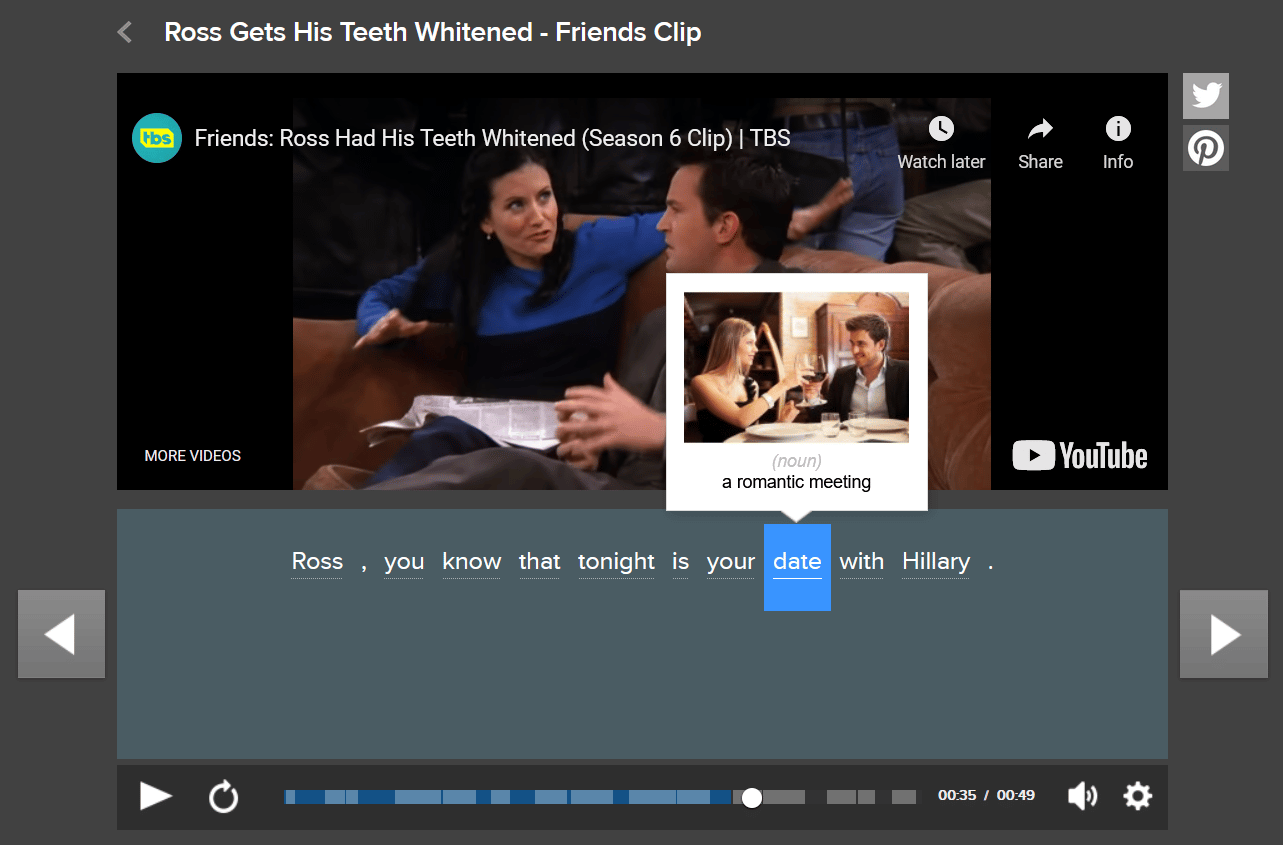
The video dictionary also links to other videos that use the word for additional context. Students can also take quizzes based on the videos and their flashcard learning.
The pop-culture content on FluentU is more interesting to students than more traditional materials, and it increases the motivation to understand the dialogue.
Authentic media lets students hear English the way native speakers use it and helps them recall the meanings of words better by creating memorable associations with stories and characters.
The FluentU program is available both for schools and for individual learners .
Like television, movies are a popular conversation topic. I mean, who doesn’t watch movies? A few good questions to be asked could be:
- What was the last movie you saw? How was it?
- What is your favorite movie? Why?
- How are the movies in your country? What are the best ones?
- How often do you watch movies in English?
- If there were a movie about your life, what kind of movie would it be? Why?
Travel can be a great discussion topic – it encourages storytelling in the past tense and inspires students to talk about culture and similar topics.
Here are some possible questions:
- Where have you traveled?
- What countries have you been to?
- Where would you like to travel to in the future?
- When you travel, what safety precautions do you take?
- Do you like to prepare a lot before you travel, or just wing it?
- What are some cultural issues that you have experienced while traveling? Do you have any funny or embarrassing stories?
Talking about first dates gets everybody interested. We’ve all been there.
- How many first dates have you had?
- How do you feel about first dates?
- What is a common first date like in your country?
- What is the best/worst first date experience you’ve ever had?
- What makes a good first date in your opinion?
Everyone feels a certain way about risk. Some are risk-oriented, others are risk-averse. Talking about risks seems to generate some good conversation. You could ask questions like:
- What is your definition of risk?
- Are you a risk taker? Why/why not?
- What are the advantages/disadvantages of taking risks?
- What risks do you come across in your work/life?
- What risks have you taken in your life?
Whether or not the students are a motivated bunch, motivation is a good topic to discuss in order to inspire your students.
- How motivated are you in general?
- What motivates you to do things?
- What is the best motivator to succeed?
- What do you do when you feel unmotivated?
- What is a good way to motivate others?
Anyone can appreciate beauty in all its forms, and anyone can recognize the importance of the concept of beauty in our cultures, societies and behaviors.
This makes it a good topic to discuss to get some opinions and various views within a group.
- What is “beauty”?
- What/who do you consider beautiful?
- What does “inner beauty” mean to you?
- Do you consider artificial beauty (cosmetic surgery) to still be beauty? Why/why not?
- How do you feel about the emphasis that people put on beauty these days?
- What would you tell your children about beauty?
Crime may not be on the top of people’s lists of favorite topics but it’s something that’s talked about.
Depending on someone’s life experiences, it may be something that has affected their lives. Learning to discuss it could help in the long run.
Good discussion questions are:
- Is crime a big problem in your city/country?
- Have you ever been a victim of crime?
- What crime is common in your city/country?
- What would you do if you noticed a crime being committed?
- How is the law enforcement in your city/country?
Most people have had some firsthand experience with love that they’d like to talk about. It’s another one of those universal topics that gets the conversation going.
Even if it’s not about romantic love and heartbreak, students can talk about familial love with their parents and children, as well as love between friends.
Questions like these are good:
- What is love?
- Who/what do you love?
- What good/bad experiences have you had with love?
- Can you be too young to be in love? Why/why not?
- How do you feel about love?
We all have goals and talking about them actually gets us more encouraged to do something about them. Sharing goals is also a good way to help get them achieved.
A good set of questions is:
- What are your current goals in life?
- How do you plan to reach your goals?
- How often do you set goals for yourself?
- What goals have you set and achieved in the past?
- How do you feel when you reach your goals?
We all have dreams, sometimes on a nightly basis, and they can make for a great discussion topic as it inspires students to be creative and even whimsical.
Great questions for this topic include:
- What kinds of dreams do you have?
- What do you think dreams mean?
- How much of your dreams do you remember? Why?
- What is your opinion on premonitions? Are they real?
- What are examples of memorable dreams you have had?
Along with eating, people love talking about their favorite eateries and restaurants. Some students might even relate to each other with their choices and views.
Good questions include:
- How often do you go to restaurants?
- What is your favorite restaurant? Why?
- What do you usually order at a restaurant?
- What is the restaurant experience like in your country?
- Have you ever worked in a restaurant?
- If you owned a restaurant, what kinds of food would you serve?
Cooking is another topic that may allow for some good conversation. Most people in most countries do a good amount of cooking.
A few good questions could be:
- In your home, who usually cooks?
- How often do you cook?
- How well do you cook? What can you cook well?
- What are the advantages/disadvantages of cooking?
- What food would you like to learn how to cook?
Recipes can be a fun way to introduce students to assorted cooking vocabulary and phrases. And in addition to written recipes, there are tons of recipe videos on the web if you want to work on listening comprehension as well.
FluentU has lots of videos about food and cuisine, as well as several captioned recipe videos.

If there is one topic that affects everyone, it has to be money. People love talking about money.
Well, they may not if they’re broke—but even then it’s a relatable topic that gets conversations going.
Great questions include:
- How well do you manage your money?
- Why do some people have money problems?
- What are some good ways to make money?
- What would you do if I gave you $20/$2,000/$2,000,000?
- How often do you save money? Why?
This one is a personal favorite for many. Shopping just brings out the zest in some people.
Others feel strongly the other way—very few people are completely neutral on this topic.
A few good questions are:
- Do you enjoy shopping? Why/why not?
- What is your favorite shop? Why?
- In your city, where is a good place to go shopping?
- How do you feel about online shopping?
- What do you think shopping will be like in the future?
Everybody makes plans and discussing them could even influence the class to start making plans of their own! A few example questions include:
- How often do you plan things? Why?
- What are your plans for (________)?
- What are your plans for your English?
- What do you think of this quote? “Having no plan is a plan to fail.”
- Do you have any back-up plans?
Books make for a good conversation topic because most people enjoy a good book.
When you read, your mind is filled with new images, feelings, ideas and thoughts. It can be immensely satisfying for someone to share how they feel about reading.
Some questions to ask are:
- Do you like books/reading? Why/why not?
- What kind of books do/did you like?
- What is your favorite book? Why?
- What was the last book you read?
- Do you believe reading books/literature is more important than reading stuff online? Why/why not?
Life discussions go on in all languages and English is no exception.
Life is a good topic since everyone has their own views and thoughts on this universal subject.
You could bring up questions like:
- What is the meaning of life?
- How is your life going up to this point?
- What do you think happens after death?
- What important life lessons have you learned?
- If tomorrow was your last day to live, what would you do?
Learning is like nature—it’s all around us, even on a subconscious level. Our brains are built to absorb, filter and store information.
A conversation about learning could actually stimulate some English learning!
A few questions that are suitable are:
- How important is learning? Why?
- Besides English, what are you currently learning?
- What things are you good/bad at learning? Why?
- What would you most like to learn?
- What is the most difficult part of learning? Why?
Games are fun and everybody enjoys fun, no?
But in all seriousness, talking about games tends to gear the conversation more toward past tense, which can bring students a fond sense of nostalgia.
Some simple questions could be:
- What is your favorite game ever?
- What games did you play as a kid?
- What games are popular/came from your country?
- How competitive are you when it comes to games?
- What games do you still play now? Why?
It’s hard to go a day without talking about computers. This universal topic could have students discussing quite a few things, much of which could relate to real life too!
Great questions on this could be:
- Describe your computer at home/work.
- What do you usually use a computer for?
- Do you like computers? Why/why not?
- What was the first computer you ever had like?
- What do you think will be the future of computers?
Even though nobody likes to talk about problems per se, everybody still talks about their problems to other people!
Problems are actually a good topic for discussion since they could help others relate to each other and even present solutions too.
A few fine examples of questions are:
- How do you deal with your problems?
- What problems do you come across in your work or life?
- Do you feel that problems are opportunities? Why or why not?
- What was the last problem you solved and how did you do it?
- “Problems don’t matter. Solutions do.” Do you agree or disagree?
Discussion questions like the ones above—questions about everyday things—work well because they really get the brain thinking.
These topics relate directly to students on a familiar level and can even spark some fascinating discussions.
You could even mix up the example questions any way you’d like.
These topics may even inspire you to come up with some of your own, as you begin to understand what works and what doesn’t.
Happy discussing!
For more tips, check out this post next:
Wondering how to teach ESL to adults? While your lessons might be a bit less chaotic than with younger students, they don’t have to be dull or boring. Everyone enjoys…
Enter your e-mail address to get your free PDF!
We hate SPAM and promise to keep your email address safe

10 English Speaking Topics For Intermediate Students

- Blog Detail

For every ESL student, speaking with native English speakers is like a dream come true. To get to a decent conversational level to be able to talk to native speakers, you have many things to learn and many words and phrases to remember.
And while we are talking about words and phrases, have you been thinking about some English-speaking topics?
There are plenty of entertaining topics you can chit-chat about. The following topics are suitable for intermediate students, so keep reading and see which ones you find most entertaining or which ones are your favorites.
15 Different English Speaking Topics For ESL Intermediate Students
You don’t know what to talk about with native English speakers?
Don’t worry because, in the following lines, you can find 15 different discussion topics ideal for English intermediate students.
Everyone likes to travel. Visiting other places, learning about other cultures, and meeting new people is always fun. Besides, it is one more experience and opportunity to practice the language.
What country would you like to visit?
Which country you would never visit again?
Which country did you visit more than once?
What do you like to visit in a foreign country?
Do you like traveling in summer or winter?
Food And Cooking
Food is also one of the favorites topics because everyone likes talking about food and delicious dishes.
It is mainly one of the topics suitable for beginners because of the related vocabulary, but you can expand and ask for more details for a more advanced level.
What is your favorite food? And why?
Which country, according to your opinion, has the best dishes?
What is the worst thing you’ve ever tasted?
Do you like to cook?
What do you like to cook?
How often do you cook?
What are the advantages or disadvantages of cooking?
Where do you get ingredients for cooking?
What do you think about organic food?
Do you eat only organic food?
Hobbies are something we enjoy doing in our spare time, so, naturally, everyone loves talking about their hobbies.
Do you have any hobbies?
How often do you do your hobbies?
How did you start these hobbies?
What do you think about (not) having hobbies?
What hobbies did you used to have and which ones you would like to do?
Work is a very important part of our lives. Most of us have jobs and work, so we always have to say something about that. Talking about work is one of the topics that can get people together.
Here are some suggestions when talking about work.
What work do you do?
Do you like your job?
Is your job demanding?
What is your opinion about work in general?
What is your dream job and why?
Environment
Topics about the environment are always inspiring and can lead to many other, even different, topics.
So, it is good to talk about the environment, as long as the conversation remains polite and without arguing.
What are serious environmental problems?
How can people help the environment?
What is your opinion about climate change?
What do you think about pollution?
What should the government do to help the environment?
Television And Social Networks
Talking about television and social networks is entertaining and it gathers people together.
There are plenty of things you can chit-chat about television and media and here are some of them.
What is your opinion about television?
Do you watch television?
How often do you watch television?
Which tv programs do you watch?
Is watching television good for kids and if not, why?
Why are social networks so popular?
What do you think about social networks?
Do you use social networks?
Do people use social networks for bad purposes?
Which social networks do you use?
Don’t think that only men like talking about sports. You would be surprised to hear that many women actually like talking about this topic. Therefore, don’t divide people by gender. If you like talking about sports, ask your speaker about the opinion, no matter if it is a woman.
Do you like sports?
What is your favorite sport?
Do you watch sports?
Did you play any sport while you were in school?
Do you play sports now?
How often do you play sports?
Animals And Pets
These living beings that are part of our lives and our best friends are the topic everyone would gladly talk about. That’s why in the following lines, you can find some questions about animals and pets.
Do you like animals?
Do you have any pets?
Which is better to have as a pet, a dog or a cat?
What is your favorite animal?
What do you think about using animals for various types of testing?
English Tutors English TutorsSee More
Spanish Tutors Spanish TutorsSee More
German Tutors German TutorsSee More
See More Tutors See More Tutor
What do you think about killing animals for food?
Are people responsible for the extinction of some of the animals?
Do you help animal shelters in your town?
What is your opinion about the zoos and animals there?
Do animals suffer in zoos?
Making Plans And Goals
Making plans and goals has always been one of the favorite topics people like to discuss. Why then it wouldn’t be one of the English-speaking topics you can talk about with native English speakers?
What are your plans for…?
What are your plans for learning English?
What are your goals in life in general?
How do you plan to reach your goals?
How do you feel when you reach your goals?
Books And Reading
With so many amazing books, this topic is always the right one to discuss with others.
This is an especially favorite topic about book lovers. They could talk about books for days.
Here are some of the questions about reading and books in general.
Do you like reading? If not, why?
What type of books do you usually read?
Do you have a favorite book?
Do you have a favorite writer?
Have you read something currently?
What was the last book you’ve read?
What do you think of e-books?
Do you read books online?
What are (dis)advantages of reading books online?
Do you usually buy or borrow books?
Popular posts
- Grammar: Parts of Speech
- Phrase of the Day. "Shoot the Breeze"
- 7 Ways to Learn Professional English by Living Your Life
- Navigating the Corporate World: Essential Business English Phrases
- Idiom of the Day. "A storm in a teacup"

Free English Placement Test
Check your Score - Try our Free English Quiz + Get a Free Bonus

[email protected]
- Why On-Line?
- The Science of ONIT
- Behind the Program
- Begin your Journey
- Earn your Certificate
- How to claim a Discount Code
Information
- Privacy Policy
© 2021 Copyrights by Oxford Language Club - All Rights Reserved


Got any suggestions?
We want to hear from you! Send us a message and help improve Slidesgo
Top searches
Trending searches
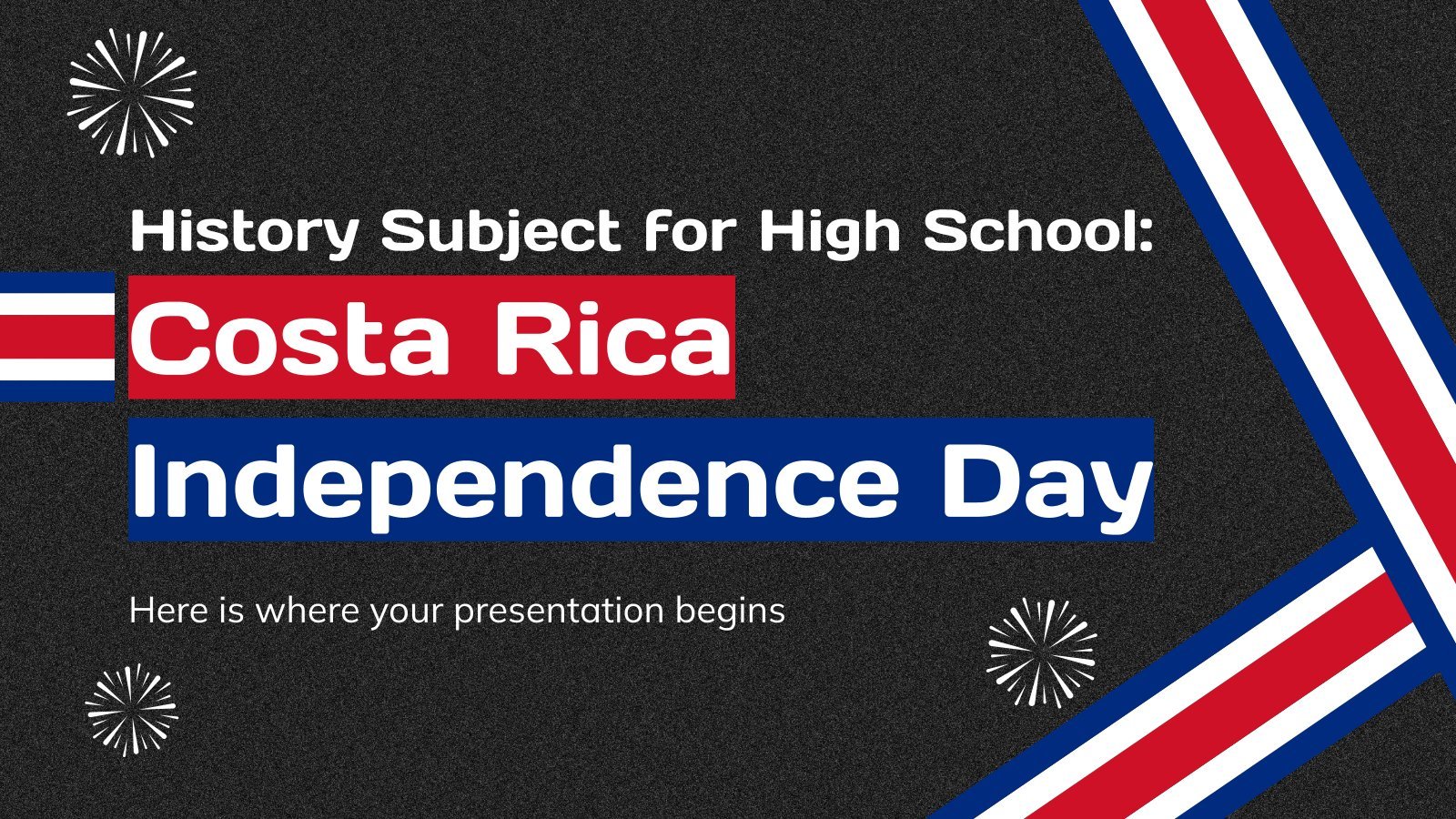
41 templates
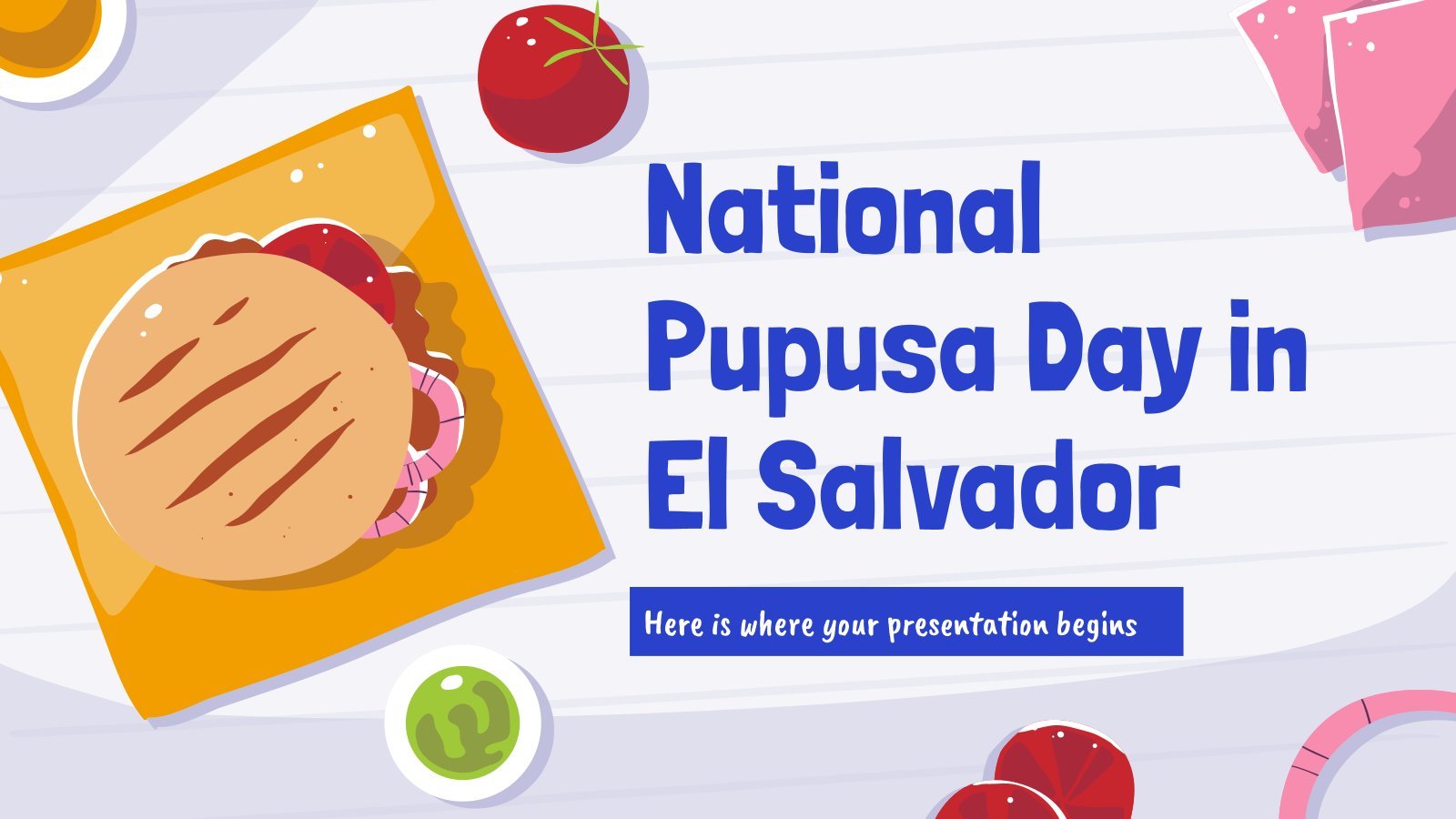
el salvador
32 templates
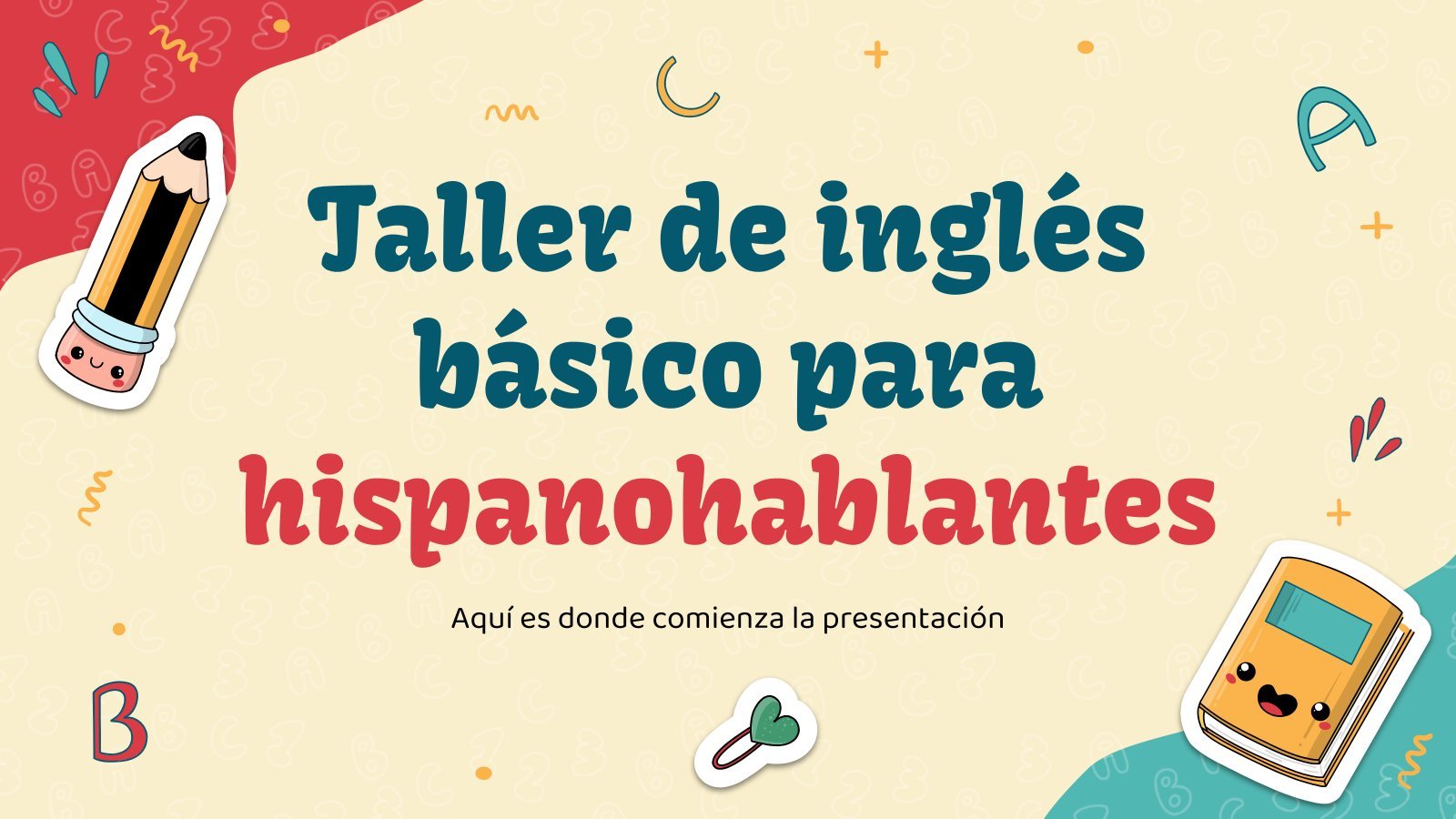
49 templates
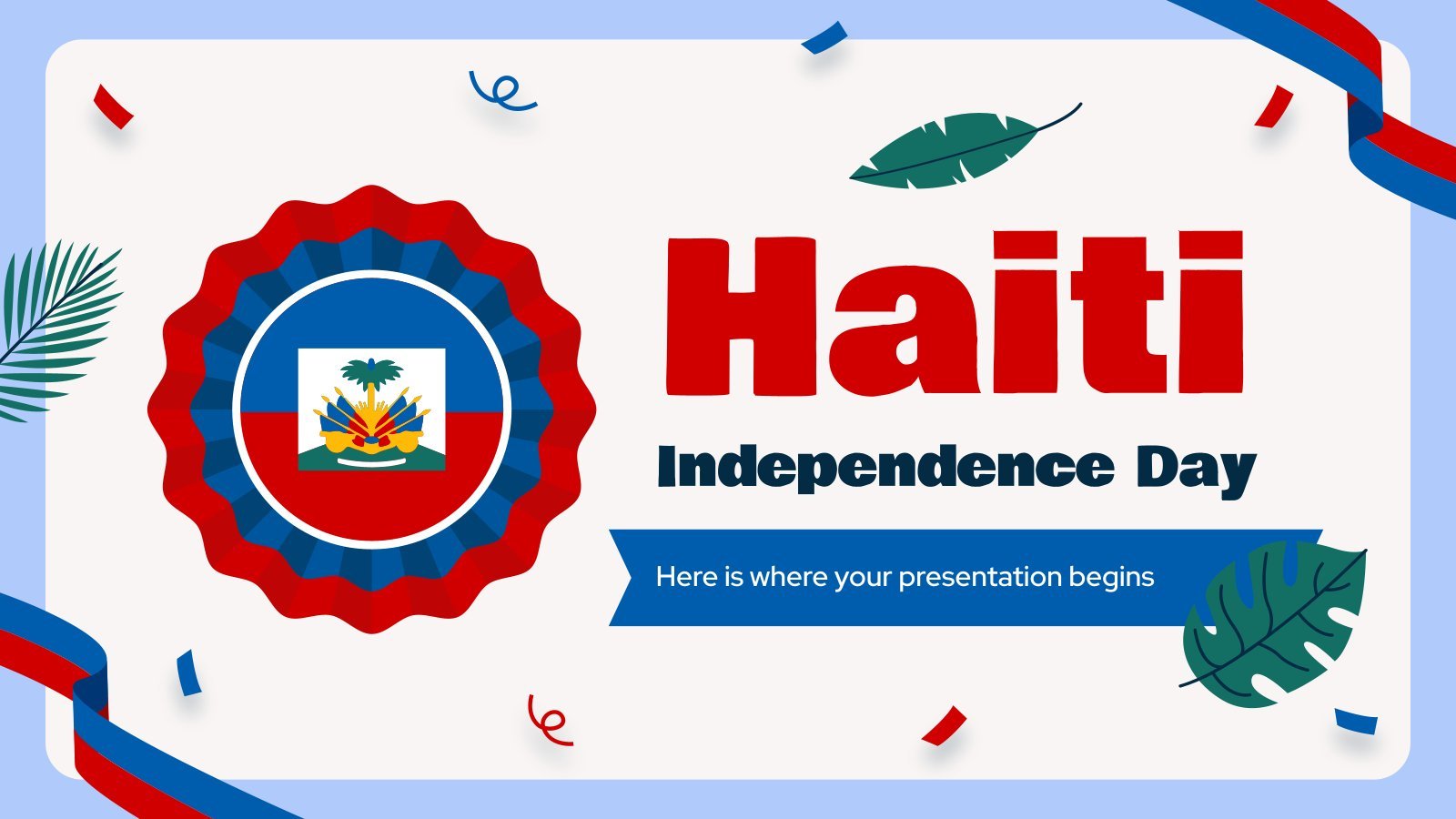
21 templates
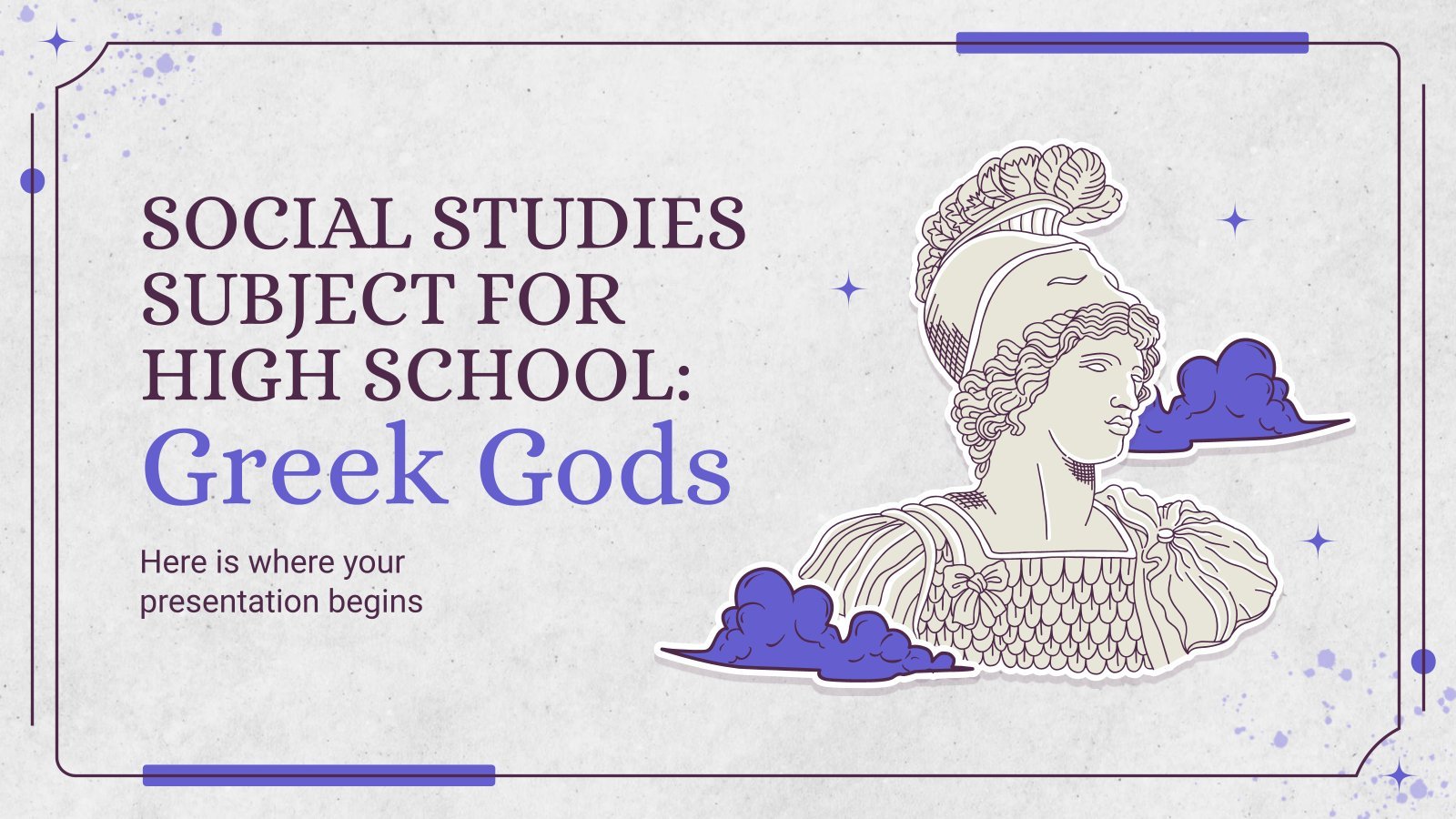
16 templates
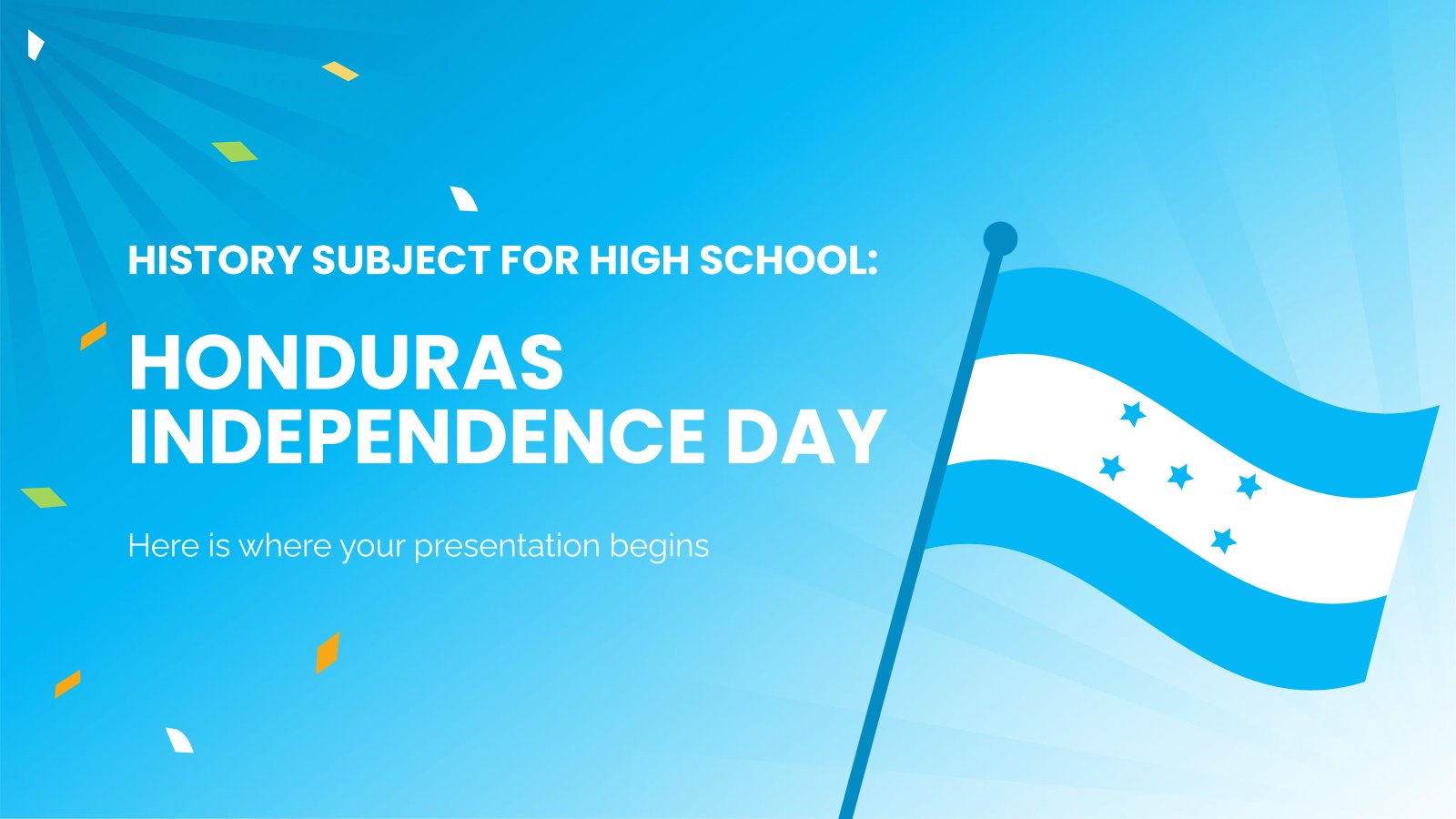
28 templates
English Presentation templates
English is one of the most widely spoken languages in the world, with almost 1.4 billion speakers. it is also used as an international lingua franca, allowing us to communicate with anyone who speaks it. it is also the language of shakespeare's fantastic literature and or of everyday words such as “play” or “mail” which are used in english even in other languages. talk about this exciting language with these creative designs. ok, let's go.
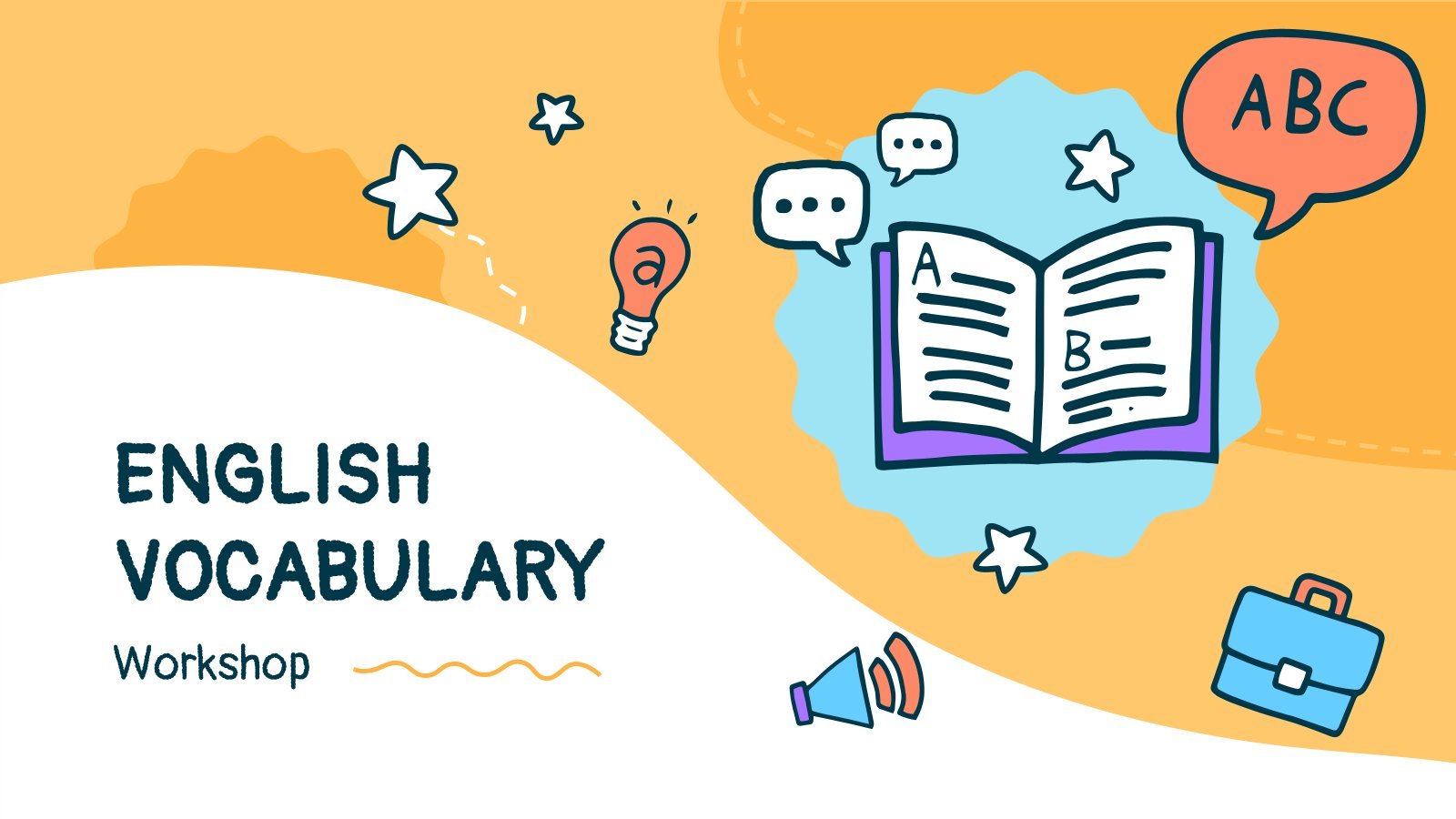
English Vocabulary Workshop
Teaching new words to your students can be a very entertaining activity! Create a vocabulary workshop with this presentation adorned with doodles, wavy shapes and different hues of yellow. Review the objectives, methodology, analysis and conclusions using pie charts, maps or tables.

Premium template
Unlock this template and gain unlimited access
English Verbs Conjugation Infographics
This is the ultimate template for English teachers! This set of infographics has all the resources you need so that your students master all 12 verb tenses. They are so easy to use that they will alleviate the TENSion of preparing the lessons, and your students will be PERFECT English...

Classic English Novels
Ah, literature, what a beautiful art. Are you an expert on classic novels written by English authors? Go back to the past with this template and tell your audience all about these best sellers that made an impact. Let the vintage look of the slides set the right tone and...

English Language Arts Thesis
Some abstract shapes on the background are always a nice touch. The ones you’ll see in this template are quite colorful, as well as the infographics and the resources included to help you explain your methodology, study, results and conclusion of your thesis on English Language Arts.

Creative Writing - Bachelor of Arts in English
Download the Creative Writing - Bachelor of Arts in English presentation for PowerPoint or Google Slides. As university curricula increasingly incorporate digital tools and platforms, this template has been designed to integrate with presentation software, online learning management systems, or referencing software, enhancing the overall efficiency and effectiveness of student...

Victorian Literature - Master of Arts in English
Download the Victorian Literature - Master of Arts in English presentation for PowerPoint or Google Slides. As university curricula increasingly incorporate digital tools and platforms, this template has been designed to integrate with presentation software, online learning management systems, or referencing software, enhancing the overall efficiency and effectiveness of student...

English Literature Class
Open your books and your mind, the class is about to begin! What is there to know about English literature? Well, everything! Sit and enjoy a lesson about the history of literature, the best works, the most famous writers or go into detail and learn what made them so special....

18th-Century Literature - Master of Arts in English
Download the 18th-Century Literature - Master of Arts in English presentation for PowerPoint or Google Slides. As university curricula increasingly incorporate digital tools and platforms, this template has been designed to integrate with presentation software, online learning management systems, or referencing software, enhancing the overall efficiency and effectiveness of student...

Language Arts Subject for Middle School - 7th Grade: Comprehension
Most people know how to read, but do they understand what they read? That's a different story! But don't worry, you are a teacher and you know what to do! Start customizing this new template for education and share the secrets of a good reading comprehension with your students. Well,...

Grammar Lesson
Noam Chomsky, the great linguist, once said that “language is a process of free creation” with fixed laws and principles, although one can use these laws freely. Learn and teach more about how grammar works with this vintage template!

Legal English Workshop
Is English legal? Or is it legal English? This play-on-words is not very good, unlike our new template for workshops! This design combines dark blue backgrounds with different geometric arrangements, which serve as decoration. It also uses a typography for titles that looks very unique—it's aim is to get your...
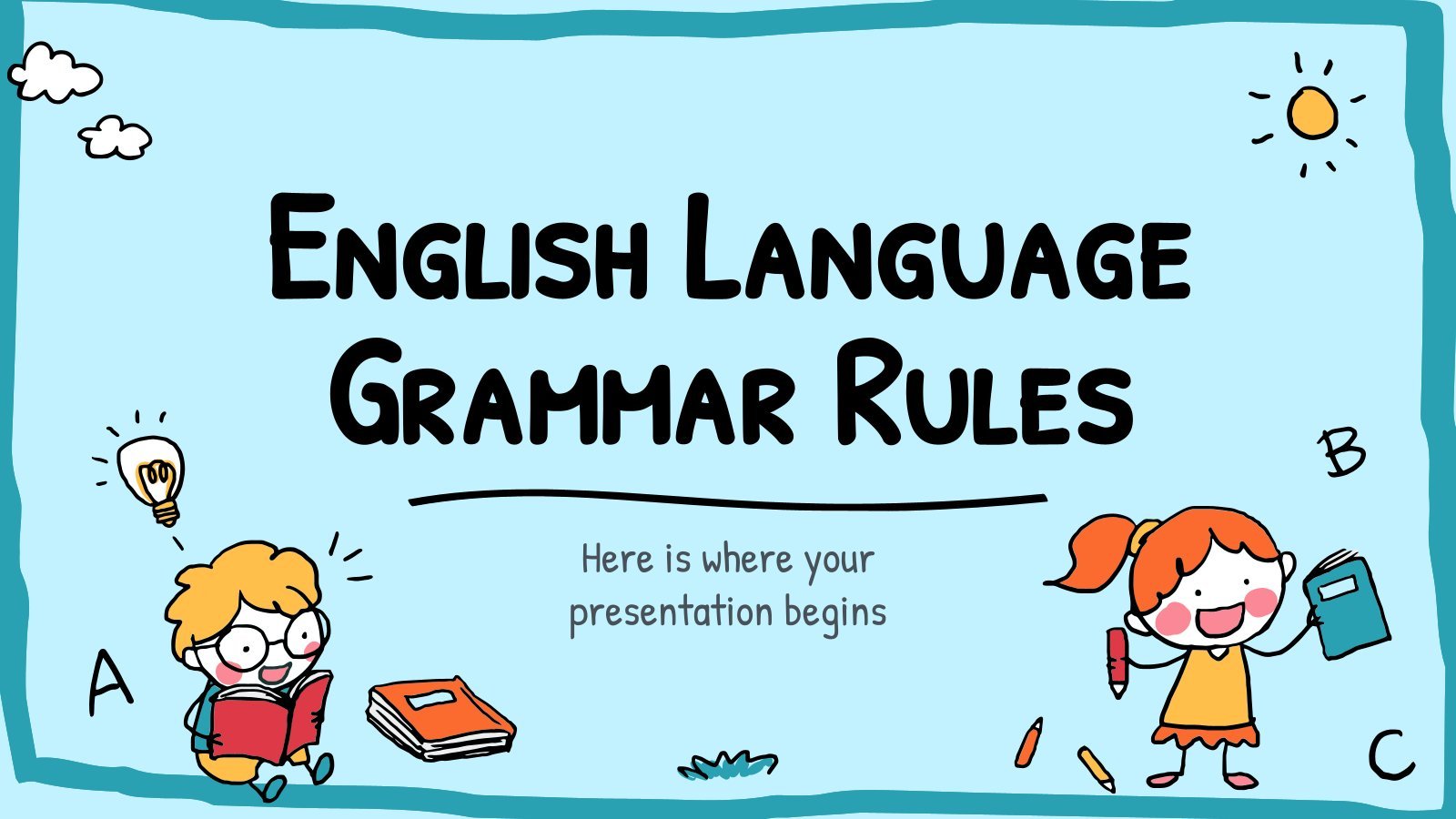
English Language Grammar Rules
The English language is spoken almost anywhere in the world, making it almost a necessity in everyone's education. Today, we're releasing this kid-friendly template with cute cartoony drawings of kids and many layouts prepared for you to teach some grammar rules. We've added some examples as a starting point. Use...

Language Arts Subject for High School - 9th Grade: Comparing Texts
Comparing texts and identifying their differences is a captivating exercise. Especially, if you teach your students how to do it with this elegant template. Novels, poems, autobiographies, descriptive texts… none of them will resist you after you practise the skills you’re going to learn with this presentation! It has lots...

Renaissance Literature - Master of Arts in English
Download the Renaissance Literature - Master of Arts in English presentation for PowerPoint or Google Slides. As university curricula increasingly incorporate digital tools and platforms, this template has been designed to integrate with presentation software, online learning management systems, or referencing software, enhancing the overall efficiency and effectiveness of student...

English Academy
Your academy fulfills a very important task: that of teaching English to the participants of the society of the future. It's time for you to give it a big boost and promotion using this fun illustrated template to talk about your teaching method, academic areas, teachers and the enrollment process...

Literary Criticism - Master of Arts in English
This elegantly designed template is a treasure for bibliophiles. Unveiling the path to mastering the fine art of literary criticism, this presentation will make your classes engaging and fascinating. It takes you on a journey of textual exploration, brought to life by beautifully floral illustrations sprinkled throughout the slides. From...

Gender and Literature - Doctor of Philosophy (Ph.D.) in English
Download the Gender and Literature - Doctor of Philosophy (Ph.D.) in English presentation for PowerPoint or Google Slides. As university curricula increasingly incorporate digital tools and platforms, this template has been designed to integrate with presentation software, online learning management systems, or referencing software, enhancing the overall efficiency and effectiveness...

Introduction to Poetry - Bachelor of Arts in English
Poetry — an emotional, meditative art form that takes time to peruse and is often overlooked in today’s fast-paced times. Give your English majors a comprehensive introduction to this reflective and emotional way of writing by outlining different forms and styles as well as figurative language and the history of...
- Page 1 of 7
New! Make quick presentations with AI
Slidesgo AI presentation maker puts the power of design and creativity in your hands, so you can effortlessly craft stunning slideshows in minutes.

Register for free and start editing online

- Intermediate
- All Conversation Types Case Studies (1) Reading (3) Vocabulary (79) Grammar (1) Idioms and Phrases (1) Videos (2)
- All Topics Animals (2) Books (1) Business (16) Children (4) Education (8) Entertainment (1) Environment (1) Exercise (1) Family (3) Food and Drink (1) Health (7) History (1) Internet (9) Languages (1) Law and Order (14) Leisure (3) Life (22) Money (8) Movies (1) Politics (16) Random (5) Relationships (1) Religion (1) Technology (4) Shopping (2) Spirituality (2) Work (13)
- All Levels Beginner (55) Intermediate (267) Advanced (87)

Urban Gardening

Government Propaganda

Prostitution

Planet of The Apes

Affirmative Action

Overpopulation

Ethical Discussions

Unusual Conversation Questions

Procrastination

Unemployment Benefits

Raising Finance

Cultural Awareness

Student Loans

The Digital Workplace

Negative Questions

The Stress of Gen Z

Mugged at Knifepoint

Ponzi Scheme

Milk It Dry!

Florida’s School Book Ban

120 Presentation Topic Ideas Help You Hook Your Audience
Updated: January 15, 2024
Published: August 09, 2023
Cooking is easy. The puzzle is figuring out what to eat. As soon as you know that, you can get started. The same holds for presentations. The sooner you can whip up a good, informative, and catchy topic, the easier the rest of the process becomes.
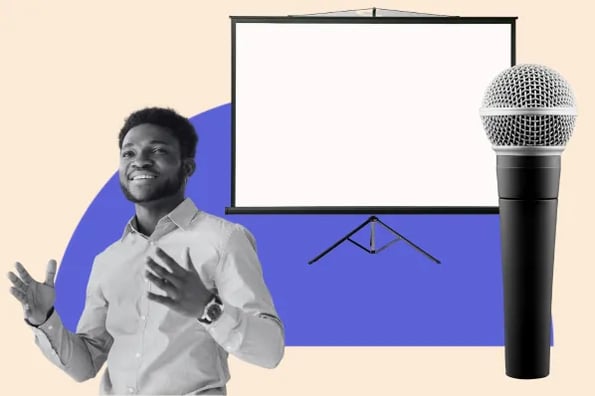
Pick a good topic that resonates with you and your audience to set a strong foundation. But select the wrong topic, and it becomes difficult to connect with your audience, find mutual interests, or hold their attention.
So, let’s learn how to develop thought-provoking and relevant topics for your presentations. You’ll also find some best practices to make your presentation memorable.

10 Free PowerPoint Templates
Download ten free PowerPoint templates for a better presentation.
- Creative templates.
- Data-driven templates.
- Professional templates.
You're all set!
Click this link to access this resource at any time.
Table of Contents
How to Choose a Great Presentation Topic in 5 Steps
120 presentation topic ideas, 5 presentation tips.
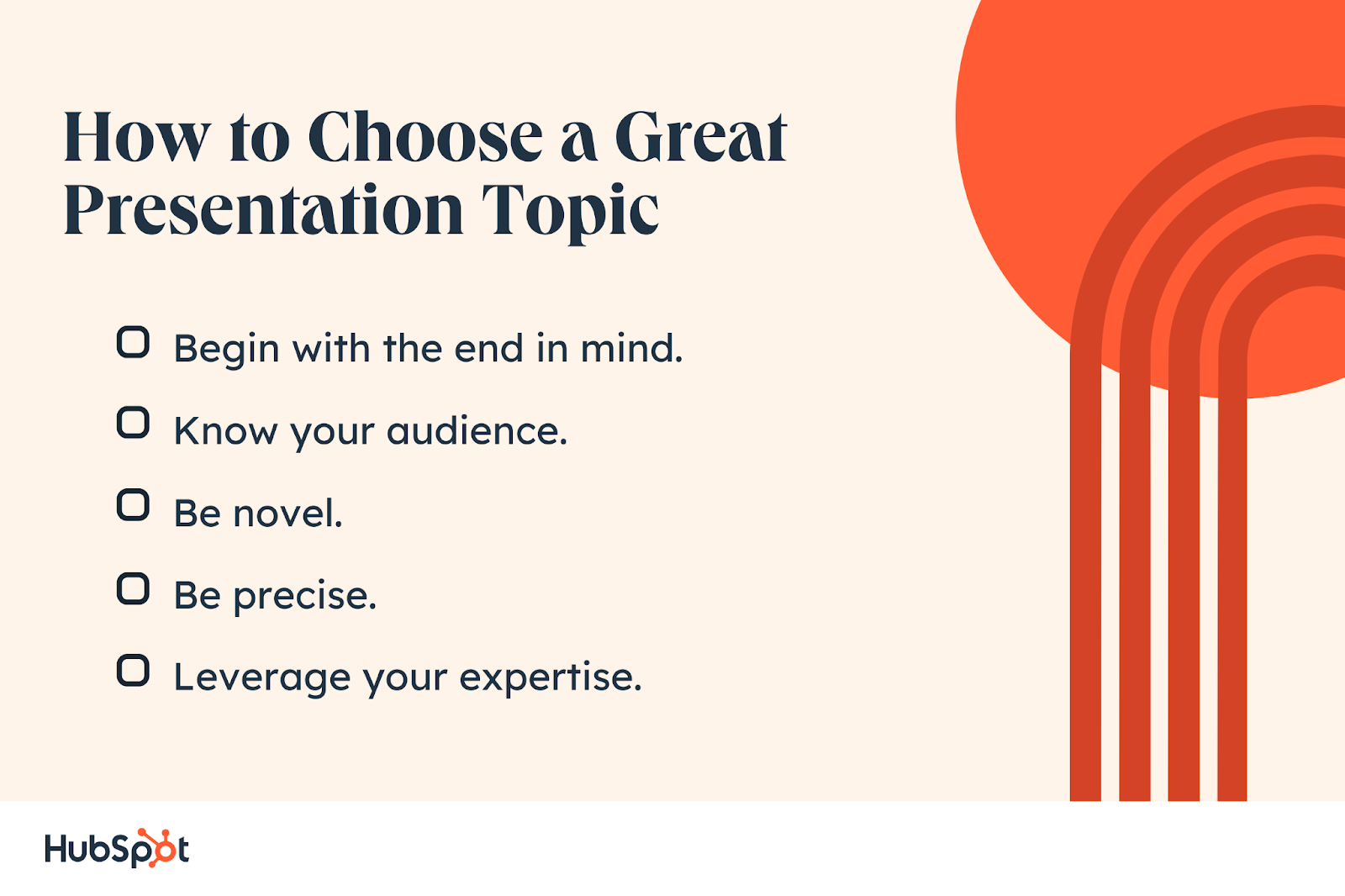
4. Choose an appropriate presentation style.
There are many ways to present a topic. Your personality, the topic at hand, and your audience’s personas will help you determine which style would best fit you and your audience.
Select a presentation style that will communicate the main idea clearly and have a lasting impact on your audience.
For instance, explore a freeform style presenter by Sir Ken Robinson.
5. Engage with your audience.
Work on your presentation skills to make a strong connection with your audience, get through to them and leave a mark.
Think of the presenter as the link between the topic and the audience. A strong or a weak presenter can make a difference between a presentation being a thriving success or a boring failure.
Hone your skills by engaging and interacting with your audience. Make them feel like a part of the presentation and not just spectators. 70% of marketers have found presentations with interactive content to be more effective than those without.
Here are a few ways you can make your presentation interactive:
- Start your speech with uncommon questions to your audience. Involve them from the get-go, like ask to raise their hands if X.
- Make eye contact to build credibility and show confidence. Don’t stare at your slides or notes. Smile occasionally and talk to the audience directly.
- Have an active and confident body language. Don’t stand in the same place the entire time. Move around the stage.
- Don’t be monotonous. Speak as you would to a colleague — with enthusiasm.
- Ask close-ended questions in between to keep the audience engaged without losing time. Address them using their names to keep things interesting.
- Share personal experiences and stories that your audience will find fascinating and relatable.
- Practice thoroughly before you present so you’re fluent with the material and delivery.
- Energy and excitement can be quite contagious. Make sure you exude enough to spread some to your audience.
Feeling Inspired Yet?
Now you have all the right ingredients for choosing amazing topics and a hundred ideas to drive inspiration from. So, go ahead and start cooking presentations that will blow your audience away.
Don’t forget to choose a super-relevant topic and add meaty information. Do it with excitement to make it enjoyable for you and your audience. Best of luck!
![english lesson presentation topics Blog - Beautiful PowerPoint Presentation Template [List-Based]](https://no-cache.hubspot.com/cta/default/53/013286c0-2cc2-45f8-a6db-c71dad0835b8.png)
Don't forget to share this post!
Related articles.
![english lesson presentation topics How to Write an Ecommerce Business Plan [Examples & Template]](https://blog.hubspot.com/hubfs/ecommerce%20business%20plan.png)
How to Write an Ecommerce Business Plan [Examples & Template]
![english lesson presentation topics How to Create an Infographic in Under an Hour — the 2024 Guide [+ Free Templates]](https://blog.hubspot.com/hubfs/Make-infographic-hero%20%28598%20%C3%97%20398%20px%29.jpg)
How to Create an Infographic in Under an Hour — the 2024 Guide [+ Free Templates]
![english lesson presentation topics 20 Great Examples of PowerPoint Presentation Design [+ Templates]](https://blog.hubspot.com/hubfs/powerpoint-presentation-examples.webp)
20 Great Examples of PowerPoint Presentation Design [+ Templates]

Get Buyers to Do What You Want: The Power of Temptation Bundling in Sales

How to Create an Engaging 5-Minute Presentation
![english lesson presentation topics How to Start a Presentation [+ Examples]](https://blog.hubspot.com/hubfs/how-to-start-presenting.webp)
How to Start a Presentation [+ Examples]
![english lesson presentation topics 17 PowerPoint Presentation Tips to Make More Creative Slideshows [+ Templates]](https://blog.hubspot.com/hubfs/powerpoint-design-tricks_7.webp)
17 PowerPoint Presentation Tips to Make More Creative Slideshows [+ Templates]
![english lesson presentation topics How to Create the Best PowerPoint Presentations [Examples & Templates]](https://blog.hubspot.com/hubfs/Powerpoint%20presentation.jpg)
How to Create the Best PowerPoint Presentations [Examples & Templates]

The Presenter's Guide to Nailing Your Next PowerPoint
![english lesson presentation topics How to Create a Stunning Presentation Cover Page [+ Examples]](https://blog.hubspot.com/hubfs/presentation-cover-page_3.webp)
How to Create a Stunning Presentation Cover Page [+ Examples]
Marketing software that helps you drive revenue, save time and resources, and measure and optimize your investments — all on one easy-to-use platform

IMAGES
VIDEO
COMMENTS
ESL Presentation Topics: 12 Mini Presentations. ESL presentation topics for intermediate and upper intermediate students. Great as a warm-up or a speaking lesson. You can use the slideshow and share your screen on Zoom or other app when teaching online. Just click on the full screen option in the top right corner of the slideshow.
The audience can also be set a task, for example, a set of questions to answer on the presentation, which is a way of getting students to listen to each other. Syllabus fit Normally the presentation will come towards the end of a lesson or series of lessons that focus on a particular language or skill area. It is a type of freer practice.
List of Presentation Topic Ideas for Students. We know how difficult it is to come up with an interesting presentation topic idea on the fly. That's why we put together a list of more than 200 ideas to help you out. We've organized these presentation topics for students by subject so you can easily browse through and find what you're looking for.
Business. In this lesson about business presentations in English, students discuss presentation structures in depth, watch a video with tips on giving presentations, and learn useful words and phrases related to the topic. The lesson is the first of the three-part series of lessons about delivering presentations. Unlimited Plan Show.
like. 3. hear. 4. know. Write the words in the correct gaps. There is one word you don't need to use. Put the words in order to create something you might say at the start of a presentation. Put these sentences in order to create the introduction to a presentation.
Download FREE ESL PowerPoint lessons and use them in class today. These PowerPoint lessons are great to use in lessons teaching English to English language learners. You'll find vocabulary PowerPoints, grammar PowerPoints, seasonal grammar points, phonics PowerPoints, and more presentations covering the topics that ESL students typically study.
Use short, simple sentences to express your ideas clearly. Pause from time to time and don't speak too quickly. This allows the listener to understand your ideas. Include a short pause after each idea. Speak clearly and at the right volume. Have your notes ready in case you forget anything. Practise your presentation.
The lesson includes vocabulary development and a presentation activity which can be extended to include preparation of slides with visual aids. Students should prepare and practise their presentation as homework and deliver it in another lesson. The materials also include an optional extension activity relating to what can go wrong with a ...
A selection of English ESL intermediate ppt slides. Log in / Register. Worksheets. Powerpoints. Video Lessons. Search. Filters. Browse Topics: Grammar Topics General Topics. 8,910 Intermediate English ESL powerpoints. SORT BY. Most popular. TIME PERIOD. All-time. kiscsepo. speaking tasks for i. This ppt contains a .
Our English for presentations lessons are listed by release date, with the most recent lesson at the top. Each lesson includes the podcast MP3, a PDF transcript and online quizzes. BEP 33c - Presentations: Summarizing and Call to Action. BEP 380 - Videoconferences: Presenting Online (3)
Present Simple, Present Continuous, Present Perfect. It is created to revise Present Simple, Present Continuous, Present Perfect. This file includes State verbs and specifics of Present Perfect. It is useful to refresh ... 17218 uses. A selection of English ESL presentations printables.
LESSON OVERVIEW. In this lesson about business presentations in English, students discuss presentation structures in depth, watch a video with tips on giving presentations, and learn useful words and phrases related to the topic.. The lesson is the first of the three-part series of lessons about delivering presentations.
This pre-intermediate and intermediate Business English lesson plan is dedicated to the topic of presentations. It is the first of a series of lessons about presentation skills. This lesson is focused on different techniques used to hook the audience at the beginning of a presentation. Reading and useful language: After an initial discussion ...
About the Business English Topics And Activities. Lessons including well-designed activities will prepare your students for their professional lives and give them the necessary skills and vocabulary needed to communicate effectively in English. ... Have them give a few-minute presentation in the following lesson about the start or history of ...
Listening to music with English lyrics can be fun and engaging activity that can also start conversations. Watching music videos with subtitles will help students remember the vocabulary they hear in a song. 8. Television. Television is one of those topics that everyone has an opinion about.
Have a look at our new English Lesson template and discover the origins of the Saxon genitive! This theme is based on a lesson structure. The background is yellow, and it combines different geometric shapes in blue, gray, black, red and cream. The retro look of this template is also achieved due to the yellowish filter of the images. For their ...
Don't worry because, in the following lines, you can find 15 different discussion topics ideal for English intermediate students. Travel. Everyone likes to travel. Visiting other places, learning about other cultures, and meeting new people is always fun. Besides, it is one more experience and opportunity to practice the language.
Download the Victorian Literature - Master of Arts in English presentation for PowerPoint or Google Slides. As university curricula increasingly incorporate digital tools and platforms, this template has been designed to integrate with presentation software, online learning management systems, or referencing software, enhancing the overall ...
A selection of English ESL ppt slides with beginner (pre-a1) Search free ESL worksheets and video lessons. Worksheets. Powerpoints. Video Lessons. Search. Filters. SELECTED FILTERS. Clear all filters ... SORT BY. Most popular. TIME PERIOD. All-time. Mjarley. The Present Simple. Presentation of the . 115496 uses. OseiasELT. DIRECTIONS: ASKING F ...
Check out these 35 English conversation class topics to help you plan an esl conversation lessons for adults or children. Getting the conversation flowing and learners interacting is important so that children can develop their speaking and listening skills. It also makes children feel more at ease in the classroom, and more comfortable ...
Once you've chosen an English presentation template, you'll only need a few focused minutes to customize the entire file. Use our design dashboard and drag-and-drop tools to bring your English presentation ideas to life. Don't limit yourself to color schemes and fonts; explore our media library for fun stickers, illustrations, and graphic ...
Other. Browse our selection of advanced ESL speaking topics for students with a C1 or C2 level of English who want to practice their conversation skills.
Step 3: Be novel. Make sure you either select a new topic or bring an entirely new and unique perspective to an already covered issue. For instance, don't make a presentation on the "best lead generation strategies.". Your audience has probably heard those dozens of times already. Corny.
The performance of Israeli air defenses, combined with assistance from U.S. jets and interceptors, saved countless lives on the weekend. But Iran, Russia and other adversaries are learning from ...